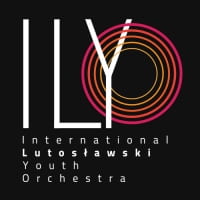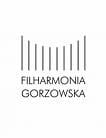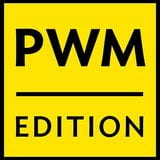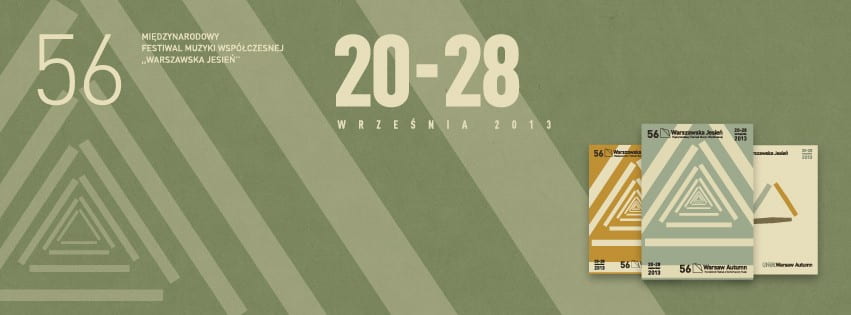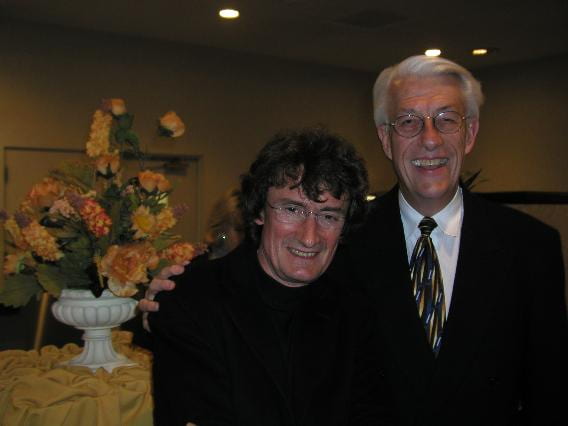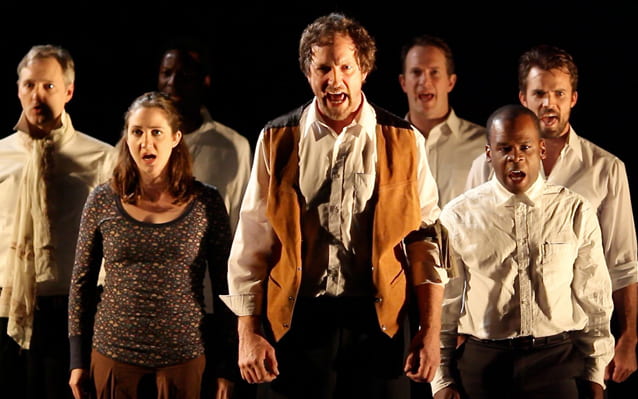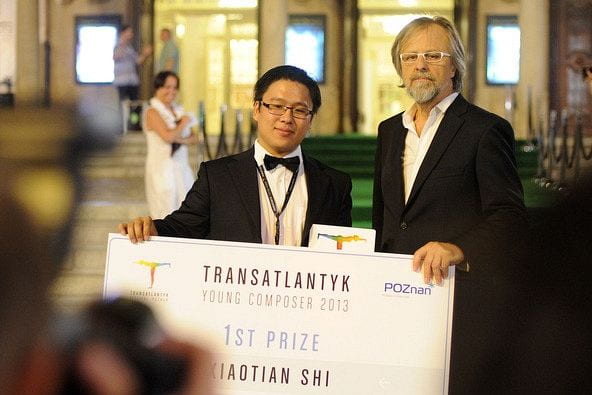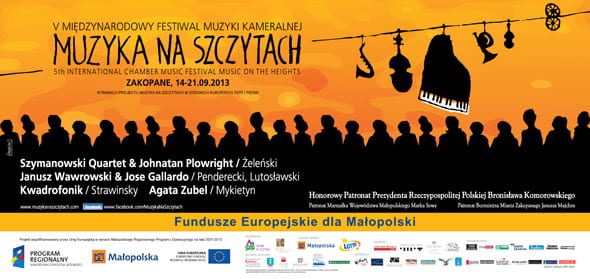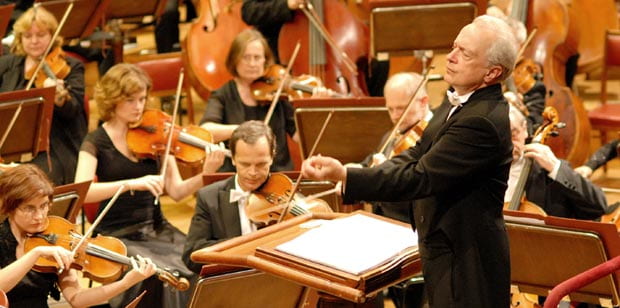Polish Music Newsletter Vol. 19, no. 9
PMC News
2013 Paderewski Lecture-Recital Preview
I have worked in nearly all the fields of the music world. Rock men greet me as a rock musician, jazzmen—as a jazzman, still others—as a film composer. But I am personally convinced that classical music is my proper domain. I dedicate about 80 per cent of my time, or more in some periods, to the composition of contemporary classical music. Unfortunately, the world of contemporary music is so small that at times I cannot help having the impression that I could easily suffocate in it. And, for that matter, I do not seem to be fully accepted in that world. […]The Warsaw Autumn has never presented my works, but I hope to be found worthy of this honor when I celebrate my 80th birthday… […]. My pieces are performed every month, also frequently abroad. I feel happy that my works are played at usual philharmonic concerts, not only at festivals.
Studio Magazine 1999 no. 5
The PMC’s 2013 Paderewski Lecturer is Krzesimir Dębski, a favorite of audiences throughout Los Angeles and the world. Celebrating his 60th birthday this year, Dębski is a prominent Polish composer who is also a virtuoso violinist and pianist, and a celebrated orchestral conductor. Equally at home in the world of jazz and classical music, Dębski is chiefly known in Poland for his numerous and highly popular film scores. In addition, he is also famous as a songwriter and arranger, and a composer of music for theatre.
However, Dębski’s Paderewski Lecture and the recital of his music—which will be held on October 20 at 7:00 pm on the USC campus—will focus on his lesser-known but extensive output of compositions for the classical concert stage. The program will include the World Premiere of his Violin Sonata (2013) as well as a selection of his works for wind ensemble and voice. Performers will include the Panic Duo (Pasha Tseitlin – violin and Nic Gerpe – piano), the Midnight Winds (Amy Tatum – flute, Jennifer Johnson – oboe, Andrew Leonard – clarinet, Maciej Flis – bassoon, and Allen Fogle – horn), Dębski’s wife, vocalist Anna Jurksztowicz, and the composer himself.
Born in Wałbrzych on October 26, 1953 into a musical family, Krzesimir Dębski studied music from an early age. Already during middle school Dębski played in various musical ensembles, including The Hazards and Maszyna Rytmu [The Rhythm Machine], and made his debut in 1973 at the Rack Avant-Garde Festival in Kalisz. He later joined the group Warsztat [The Workshop] as a jazz violinist, performing at the Jazz on the Odra River Festival in Wrocław in 1975. Later Dębski worked with the Tey Cabaret in Poznań, Jonkisz Jazz Orchestra, Górny Orchestra, and Orchestra of the Eighth Day.
 Starting in 1973 Dębski studied composition with Andrzej Koszewski and conducting with Witold Krzemieński at the Poznań Academy of Music. In 1980 he began touring all of Europe and North America as violinist with the celebrated String Connection ensemble. Winner of the First Prize in the International Jazz Competition in Belgium, Dębski was also honored by Jazz Forum Magazine with its Best Violinist and Best Arranger Prizes. Listed in 1985 as one of the ten best jazz violinists by Down Beat Magazine, Dębski had since then scored over seventy feature films, and numerous TV series. Among his best-known feature film credits are Ogniem i mieczem [With Fire and Sword], W pustyni i w puszczy [In Desert and Wilderness], and Stara baśń [An Old Tale]. Dębski’s soundtrack for Ogniem i mieczem went platinum in Poland, selling over two hundred thousand copies, and earned him the 2000 International Film Academy’s Philip Award. He was also the recipient of the Fryderyk Composer of the Year Award in 2000. His most recent film scores include a soundtrack for the first Polish 3D film, Battle of Warsaw 1920, Sztos 2 [Polish Roulette], and Siberian Exile. Dębski’s film scoring projects in the United States have included writing new soundtracks for the early short and medium length films of Charlie Chaplin.
Starting in 1973 Dębski studied composition with Andrzej Koszewski and conducting with Witold Krzemieński at the Poznań Academy of Music. In 1980 he began touring all of Europe and North America as violinist with the celebrated String Connection ensemble. Winner of the First Prize in the International Jazz Competition in Belgium, Dębski was also honored by Jazz Forum Magazine with its Best Violinist and Best Arranger Prizes. Listed in 1985 as one of the ten best jazz violinists by Down Beat Magazine, Dębski had since then scored over seventy feature films, and numerous TV series. Among his best-known feature film credits are Ogniem i mieczem [With Fire and Sword], W pustyni i w puszczy [In Desert and Wilderness], and Stara baśń [An Old Tale]. Dębski’s soundtrack for Ogniem i mieczem went platinum in Poland, selling over two hundred thousand copies, and earned him the 2000 International Film Academy’s Philip Award. He was also the recipient of the Fryderyk Composer of the Year Award in 2000. His most recent film scores include a soundtrack for the first Polish 3D film, Battle of Warsaw 1920, Sztos 2 [Polish Roulette], and Siberian Exile. Dębski’s film scoring projects in the United States have included writing new soundtracks for the early short and medium length films of Charlie Chaplin.
As a song writer, Krzesimir Dębski has over one hundred pop songs to his credit. Many of them are written to texts by Jacek Cygan and feature prominently in the repertoire of many well-known artists, including Edyta Górniak, Anna Jurksztowicz, Grażyna Łobaszewska, Ryszard Rynkowski, Zdzisława Sośnicka, Mieczysław Szcześniak, Natasza Urbańska and Borys Szyc. Dębski has also scored hundreds of episodes of popular Polish TV series, including Klan [The Clan], Złotopolscy [The Zlotopolski Family], Ranczo [The Rancho], and Na dobre i na złe [For Good and Ill].
Throughout the last decade, Krzesimir Dębski has received a number of commissions for large-scale orchestral works from outstanding soloists and major symphony orchestras in Poland and abroad. He has shared the stage with such internationally acclaimed artists as John Blake, Jose Carreras, The Canadian Brass, Jose Cura, Nigel Kennedy, Adam Makowicz, Ewa Malas-Godlewska, Mark O’Connor, Jean-Luc Ponty, and Vadim Repin. Krzesimir Dębski’s ever-growing catalogue of orchestral compositions currently includes two symphonies, an opera, ballet music, and eleven concertos for various solo instruments and orchestra. In great demand as conductor and performer, his recent foreign tours included performances in Mexico, India, Brazil, and the United States. Dębski’s music has been recorded on MAG Music, Pool Music, Pomarton, EMI Classics, Polstar, Warner Music Poland, Polskie Nagrania, Proton, Koch, BMG Poland, Si Music, Universal Music Polska, and Pol Music labels.
Krzesimir Dębski has served as Deputy Chair of the Polish Contemporary Music Society and has given summer course guest lectures in Ankara, Darmstadt, San Diego, and Los Angeles. In 2010 Krzesimir Dębski received the Ecce Homo Order, a Polish Catholic Church award for “Depicting life with music and a musical imprint on the picture of Poland and the world, as well as for beautiful transformation of everyday reality through good works, orderliness and harmony.”
SUNDAY, OCTOBER 20, 2013 | 7:00 P.M.
2013 PADEREWSKI LECTURE-RECITAL
Lecture by Krzesimir Dębski
Recital by Panic Duo, Midnight Winds and Anna Jurksztowicz
Alfred Newman Recital Hall, USC, Los Angeles
3616 Trousdale Pkwy, Los Angeles, CA
[Enter USC Gate #3 at McCarthy Way & Figueroa St for Parking Structure X]
Admission: FREE | USC Parking: $10
Information: www.usc.edu/dept/polish_music/pmcevents/paderewski2013.html
Reception to follow the concert
PMC’s Super Volunteers
The Polish Music Center was the very grateful recipient of the generosity of two talented young volunteers during the first half of this year. Musicologist Maria Peryt shared her time with us from January through March, and cellist Barbara Misiewicz was with us during July. Both women have extensive educations in all aspects of music, which, combined with their linguistic skills in Polish and English, made them extremely valuable additions to the PMC staff.
 Currently the head of the classical music department of the Polish division of the Warner Music group (formerly EMI Classics), Maria Peryt began her University music career at the Music Academy in Łódź as a piano student. She subsequently graduated in 2011 from the Fryderyk Chopin University of Music in Warsaw with dual graduate degrees in Musicology and Public Relations. This education plus a voracious appetite for moving Poland’s classical music scene forward has led her to a successful career not only in the classical recording business, but also as a freelance journalist and founder of the ForMusic Foundation, which supports performances of ground-breaking compositions by excellent performers in Poland.
Currently the head of the classical music department of the Polish division of the Warner Music group (formerly EMI Classics), Maria Peryt began her University music career at the Music Academy in Łódź as a piano student. She subsequently graduated in 2011 from the Fryderyk Chopin University of Music in Warsaw with dual graduate degrees in Musicology and Public Relations. This education plus a voracious appetite for moving Poland’s classical music scene forward has led her to a successful career not only in the classical recording business, but also as a freelance journalist and founder of the ForMusic Foundation, which supports performances of ground-breaking compositions by excellent performers in Poland.
 Polish cellist Barbara Misiewicz (pictured at right with PMC Asst. Dir. Krysta Close) teaches cello in Lugano, Switzerland while pursuing an intensive international performing career as a soloist and member of the Trio Ambassador and as a performer and recording artist for films. She began her music studies in her home town of Elbląg, Poland, and has since studied at the Royal Scottish Academy of Music and Drama in Glasgow, achieving Bachelor and Postgraduate diplomas in cello performance, and at the Conservatorio della Svizzera italiana in Lugano, where she received her Master degree in Music Performance. She is currently pursuing her Master degree in Pedagogy at the Conservatorio della Svizzera italiana as she continues to develop her passion for teaching with her young students and also supporting the Marta Argerich Project in Lugano.
Polish cellist Barbara Misiewicz (pictured at right with PMC Asst. Dir. Krysta Close) teaches cello in Lugano, Switzerland while pursuing an intensive international performing career as a soloist and member of the Trio Ambassador and as a performer and recording artist for films. She began her music studies in her home town of Elbląg, Poland, and has since studied at the Royal Scottish Academy of Music and Drama in Glasgow, achieving Bachelor and Postgraduate diplomas in cello performance, and at the Conservatorio della Svizzera italiana in Lugano, where she received her Master degree in Music Performance. She is currently pursuing her Master degree in Pedagogy at the Conservatorio della Svizzera italiana as she continues to develop her passion for teaching with her young students and also supporting the Marta Argerich Project in Lugano.
Thank you to Marysia and Basia for your invaluable work and tireless support given to the Polish Music Center this year!
Recent Donations to the PMC
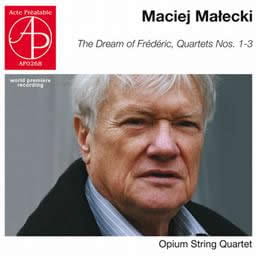 The PMC just received a gift of the recent recording of Maciej Małecki’s works for string quartet: The Dream of Frédéric and String Quartets nos. 1-3 (Acte Préalable 0268). This World Premiere recording was made by the Opium String Quartet (OSQ), which consists of Agnieszka Marucha – 1st violin (since 2011), Anna Szalińska – 2nd violin, Magdalena Małecka – viola, Olga Łosakiewicz-Marcyniak – cello. Learn more about the recording in the January 2013 Newsletter. This gift was hand delivered to the PMC by composer Veronika Krausas. Veronika recently performed with Opium at the XIII Festival International de Musique en Catalogne, which was organized by Polish composer Joanna Bruzdowicz in Céret, France and was dedicated to female composers and performers.
The PMC just received a gift of the recent recording of Maciej Małecki’s works for string quartet: The Dream of Frédéric and String Quartets nos. 1-3 (Acte Préalable 0268). This World Premiere recording was made by the Opium String Quartet (OSQ), which consists of Agnieszka Marucha – 1st violin (since 2011), Anna Szalińska – 2nd violin, Magdalena Małecka – viola, Olga Łosakiewicz-Marcyniak – cello. Learn more about the recording in the January 2013 Newsletter. This gift was hand delivered to the PMC by composer Veronika Krausas. Veronika recently performed with Opium at the XIII Festival International de Musique en Catalogne, which was organized by Polish composer Joanna Bruzdowicz in Céret, France and was dedicated to female composers and performers.
 Also arriving in August was the complete edition of the recordings made during the 2012 Warszawska Jesień Contemporary Music Festival. This 8-CD set, along with its accompanying 400+ page English-language program, is an absolute treasure trove of information about the music being created today by composers in Poland and abroad. These collections are produced annually and generously donated by the Polish Music Information Centre (POLMIC) in Warsaw to libraries around the world. This 2012 edition will join many previous years’ donations as an invaluable part of the PMC library collection, and will serve as an important resource to researchers around the world.
Also arriving in August was the complete edition of the recordings made during the 2012 Warszawska Jesień Contemporary Music Festival. This 8-CD set, along with its accompanying 400+ page English-language program, is an absolute treasure trove of information about the music being created today by composers in Poland and abroad. These collections are produced annually and generously donated by the Polish Music Information Centre (POLMIC) in Warsaw to libraries around the world. This 2012 edition will join many previous years’ donations as an invaluable part of the PMC library collection, and will serve as an important resource to researchers around the world.
Thank you to Dir. Mieczysław Kominek and Vice-Dir. Izabela Zymer of POLMIC, and to the members of the OSQ!
Lutoslawski Year 2013
Stańczyk – Lutosławski Stipend Winner
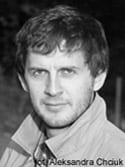 Based on the decision of the Board of the Witold Lutosławski Society, Gabriela and Marcin Bogusławski have awarded the 2013 Witold Lutosławski stipend to composer Marcin Stańczyk.
Based on the decision of the Board of the Witold Lutosławski Society, Gabriela and Marcin Bogusławski have awarded the 2013 Witold Lutosławski stipend to composer Marcin Stańczyk.
Born in Łęczyca, Poland in 1977, Marcin Stańczyk graduated from the Academy of Music in Łódź, where he studied composition under Zygmunt Krauze, and from the Faculty of Law at the University of Łódź. He also completed postgraduate studies at the Accademia Nazionale di Santa Cecilia in Rome under Ivan Fedele, and recently won the prestigious Toru Takemitsu Award. During the academic year 2011/2012, with the support of that year’s Lutosławski stipend, Stańczyk attended a course in music technology and acoustics at the IRCAM research center in Paris; this latest stipend will help support his further study at IRCAM.
[Source: polmic.pl]
Lutosławski Collective
‘The Lutosławski Collective’ is a project transforming some of the composer’s ideas into themes for improvisation. The project explores the relationship between the two creative compositional processes of improvisation and aleatoric techniques, and through this exploration provides a reinterpretation of Lutosławski’s oeuvre. Maciej Garbowski, the initiator of the project, invited the following musicians to take a new look at Lutosławski’s chamber music, with all parts treated as equals: Maciej Garbowski and Anders Jormin – double bass, Lena Willemark – violin & vocals, Andrzej Bauer – cello, Dominik Wania – piano, Sambor Dudziński – vocals, various percussion instruments, and Cezary Duchnowski – computer.
In conjunction with the Lutosławski Collective project, cellist Andrzej Bauer is curating a series of musical events and in the newly re-opened Władysław Szpilman Studio of the Polish Radio in Warsaw. According to Bauer, these “Trans-Fuzja” concerts will enliven the old studio with new sounds. The artists invited to participate in the project will perform in a number of chamber music sessions that will attempt to create new and interesting soundscapes. All performers are passionate about searching for new expressions and new sounds through unconventional uses of digital technology in conjunction with the traditional instruments.
Watch a video of the June 18 concert in the Szpilman Studio at www.polskieradio.pl.
[Sources: maciejgarbowski.com, facebook.com/Lutoslawski2013]
Lutosławski – Symphonies on the Air
On August 22, Polish-Canadian composer Piotr Grella-Możejko dedicated his “Avant-garde & Beyond” radio program #112 to one of the greatest composers in the history of music, Witold Lutosławski, who created a body of work seldom equaled in the last century. A superb orchestral composer, his legacy includes four symphonies, without a doubt one the most original and powerful symphony cycles alongside those of Hartmann, Penderecki, and Shostakovich.
Avant-garde & Beyond airs on CJSR Radio (88.5 FM) in Edmonton, AB, Canada on Thursday: 9:06 – 11:00 A.M. MST (8:06-10:00 A.M. Vancouver; 11:06 A.M.-1:00 P.M. Montréal, Toronto, New York; 11:36 P.M.-1:30 P.M. St. John’s; 4:06-6:00 P.M. London, UK; 5:06-7:00 P.M. Central Europe; 6:06-8:00 P.M. Athens, Greece; 7:06-9:00 P.M. Moscow, Russia; and Friday: 3:06-5:00 A.M. Canberra; 5:06-7:00 A.M. Wellington)
This month’s broadcast program:
01 Composer: Witold Lutosławski
Title: Symphony No. 1
Artist: Polish Radio National SO (Warszawa) – W. Lutosławski, cond.
Album: Orchestral Works (EMI Classics 9072262)
02 Composer: Witold Lutosławski
Title: Symphony No. 2
Artist: Polish Radio National SO (Warszawa) – W. Lutosławski, cond.
Album: Orchestral Works (EMI Classics 9072262)
03 Composer: Witold Lutosławski
Title: Symphony No. 3
Artist: Polish Radio National SO (Katowice) – A. Wit, cond.
Album: Orchestral Works (Naxos 8.553423)
04 Composer: Witold Lutosławski
Title: Symphony No. 4
Artist: Polish Radio National SO (Katowice) – A. Wit, cond.
Album: Orchestral Works (Naxos 8.553202)
[Source: press release]
Lutosławski 2013 – Promesa
Below is a selection of the upcoming concerts in the Ministry of Culture and National Heritage’s “Lutoslawski 2013 – Promesa” program, as carried out by The Institute of Music and Dance (IMiT).
|
Date |
Venue |
Event Type |
Details |
|
31 Aug. – 6 Sept. 2013 |
Mieczysław Karłowicz Philharmonic in Szczecin, PL |
Workshops and Concert/CD recording |
31.08 – 5.09 – Workshops 06.09.2013 – Final Concert of the Lutosławski Youth Orchestra Program: Benjamin Britten – The Young Person’s Guide to the Orchestra Op. 34; Chris Roe – Lavoisier’s Mirrors (Premiere of the Composers’ Competition for the 100th Anniversary of Lutosławski 2nd Prize winner); Witold Lutosławski – Concerto for Orchestra The concert will be recorded. |
|
11 Sept. 2013 12 Sept. 2013 |
Koniński Dom Kultury, Konin, PL Teatr im. Aleksandra Fredry, Gnieźnie, PL |
Children’s spectacle – pre-premiere |
The world première of “Pan Lutosławski” [Mr Lutosławski] – an attractive interdisciplinary art project for children, comprising theatre, music, dance, and light animation is coming in September 2013. On the centenary of Lutosławski’s birth, the Zygmunt Noskowski Foundation, cooperating with Teatr Muzyczny w Łodzi, is staging a new spectacle for children over 7 years old in 6 Polish cities: Konin (11 Sept. 2013), Gniezno (12 Sept.2013), Zakopane (16 Sept. 2013), Łódź (6, 7 Nov. 2013), Rzeszów (8 Nov.2013) and Nowy Sącz (10 Nov.2013). This unusual and appealing spectacle presents Witold Lutosławski as an outstanding composer, cultivated man, emphasizing the fundamental role of art in the social life. Co-produced by director Artur Głogowski, writer Bogumiła Dziel-Wawrowska and composer Tomasz Opałka, the project is based on two intermingled plots: one is the Hans Christian Andersen’ s fairy tale The Nightingale with music by Lutosławski and choreography by Artur Żymełka; and the other is a play written by Bogumiła Dziel-Wawrowska, showing crucial fragments of Lutosławski’s life. During the spectacle young and excellent musicians will perform several composer’s chamber works Performers: Janusz Wawrowski/Barbara Malcolm – violin, Anna Środecka/Katarzyna Piotrowska – violin, Katarzyna Budnik-Gałązka/Dominika Majerska – viola, Magdalena Bojanowicz/Marcin Zdunik – cello, Kornel Wolak/Jakub Sztencel – clarinet, Bartłomiej Kominek/Anna Boczar – piano, Bogumiła Dziel-Wawrowska/Emilia Klimczak – soprano, Waldemar Cudzik/Tomasz Garncarek – actors playing the role of Pan Lutosławski Organizer: Fundacja im. Zygmunta Noskowskiego |
|
11 Sept. 2013 |
Małopolski Ogród Sztuki , Kraków, PL |
Concert promoting Lutosławski’s works for children |
Program of W. Lutosławski’s songs for children: Piosenki dziecinne, Słomkowy łańcuszek, Wróbelek, Pióreczko, Muszelka, Srebrna szybka, Spóźniony słowik, O Panu Tralalińskim, and Wiosna – 4 pieśni dziecięce Performers: Marta Saciuk – voice, Agnieszka Kopińska – piano, Orkiestra Państwowej Szkoły Muzycznej w Bielsku-Białej Organizer: Polskie Wydawnictwo Muzyczne (PWM) |
|
13 Sept. 2013 |
Chmielnicki Orchestra Concert Hall, Chmielnicki, UKR |
Concert |
Program: W. Lutosławski – Muzyka żałobna Bartok in memoriam for string orchestra; W. Lutosławski – Preludia taneczne – for clarinet and orchestral; W. Lutosławski – Mała suita for orchestra; F. Chopin – Piano Concerto No. 1 Performers: Pavlo Boyko – clarinet, József Örmény – piano, Chmielnicki Symphony Orchestra, Roman Rewakowicz – cond. Organizer: Fundacja Pro Musica Viva |
|
13 Sept. 2013 |
Państwowa Szkoła Muzyczna, Płock, PL |
Concert |
Program: J. Adams – The Chairman Dances, Foxtrot for orchestra Performers: Piotr Pławner – violin, Płock Symphony Orchestra, Wojciech Michniewski – cond. |
|
19 Sept. 2013 |
Zespół Szkół Muzycznych w Poznaniu City Hall, Poznań, PL |
Lecture, Workshop, Concert |
Lecture: “The songs of Witold Lutosławski as a source of inspiration for jazz musicians” – Dr. Katarzyna Stroińska-Sierant Pop and jazz workshops: “Harmony –Improvisation – Regulations”, – Dr. Katarzyna Stroińska-Sierant Concert: “Jazz paraphrases of works by Witold Lutosławski” Retro Jazz Quartet: K. Stroińska-Sierant – piano, J. Wachowiak – saxaphone, Z. Wrombel – bass, M. Kamiński – percussion Organizer: Zespół Szkół Muzycznych w Poznaniu |
|
22 Sept. 2013 |
Kościół pw. Trójcy Przenajświętszej, Myszyniec, PL, 1:00 pm Miejski Domu Kultury, Kolno, PL, 4:00 pm Kościół pw. św. Jana Chrzciciela, Pisz, PL, 7:00 pm |
Concerts |
W. Lutosławski – 5 Folk Melodies for string orchestra; W. Lutosławski – 10 Polish Dances for chamber orchestra- selected; B. Bartok – Romanian Dances Performers: W. Lutosławski Chamber Philharmonic Ensemble from Łomża, Jan Miłosz Zarzycki and Czesław Grabowski, conds. Organizer: Filharmonia Kameralna im. Witolda Lutosławskiego w Łomży |
|
26 Sept. 2013 |
Sala koncertowa Filharmonii Kameralnej w Łomży |
Concert |
Program: W. Lutosławski – 5 Folk Melodies for string orchestra, W. Lutosławski – 10 Polish Dances for chamber orchestra- selected, W. Lutosławski – Paroles tissees (children’s lyrics), B. Bartok – Romanian Dances Performers: W. Lutosławski Chamber Philharmonic Ensemble from Łomża, Giuseppe Bruno – cond. |
|
27 Sept. 2013 |
Filharmonia Gorzowska, Gorzów, PL |
Concert |
Program: W. Lutosławski – Dance Preludes; W. Lutosławski – Double Concerto for oboe, harp, chamber orchestra; Tadeusz Baird – Music for Strings, Percussion and Celesta; W. Lutosławski – Funeral Music for string orchestra Performers: Malwina Lipiec – harp, Sebastian Aleksandrowicz – oboe, Roman Widaszek – clarinet, Gorzów Philharmonic Orchestra, Monika Wolińska – cond. |
|
29 Sept. 2013 |
Kościół pw. Wniebowzięcia NMP, godz. 15:45 Kościół pw. Ducha Świętego w Zambrowie, godz. 19:00 |
Concerts |
W. Lutosławski – 5 Folk Melodies for string orchestra; W. Lutosławski – 10 Polish Dances for chamber orchestra- selected; B. Bartok – Romanian Dances Performers: W. Lutosławski Chamber Philharmonic Ensemble from Łomża, Jan Miłosz Zarzycki and Czesław Grabowski, conds. |
|
30 Sept. 2013 |
Worldwide |
Realease of unpublished worsk by W. Lutosławski |
W. Lutosławski : 4 Orchestral Fanfares (1954), Fanfare for Louisville for wind instruments and percussion (1986), Fanfare for CUBE for wind instruments (1987), Fanfare for the University of Lancaster (1989), Fanfare for the Los Angeles Philharmonic for wind instruments and percussion (1993), Prelude for G.S.M.D. (1989) Includes a study of the musical texts with research notes by: Mariusz Pędziałek, Paweł Łukaszewski, Stanisław Majerski, Kaja Danczowska, Justyna Danczowska Publisher: Polskie Wydawnictwo Muzyczne (PWM)
|
For a full listing of all of the concerts and events taking place in September, please visit imit.org.pl/en/events/department-of-music.html.
[Sources: imit.org.pl, facebook.com]
New Lutosławski on DUX
The two following recordings will premiere on DUX Records on September 19, 2013 under the auspices of the “Lutosławski 2013 – Promesa [Promise]” project of the Ministry of Culture and National Heritage:
 Lutosławski: Works for Voice and Piano
Lutosławski: Works for Voice and Piano
Dwadzieścia kolęd na głos i fortepian (1946); Sześć piosenek dziecinnych na głos i fortepian do słów Juliana Tuwima(1947): 1.Taniec, 2. Rok i bieda, 3. Kotek, 4. Idzie Grześ, 5. Rzeczka, 6. Ptasie plotki; Dwie piosenki dla dzieci do słów Juliana Tuwima (1948): 1. Spóźniony słowik, 2. O panu Tralalińskim Lawina (1949); Srebrna szybka i muszelka do słów Agnieszki Barto (1952); Piosenka o złotym listku i Majowa nocka; Trzy pieśni żołnierskie (1953): 1. Kto pierwszy, 2. Narciarski patrol, 3. Skowronek; Pióreczko i wróbelek – piosenki dla dzieci (1953); Wianki i pożegnanie wakacji – piosenki dla dzieci (1953); Pięć pieśni do słów Kazimiery Iłłakowiczówny (1957); Bajka iskierki i inne piosenki dla dzieci (1958): 1. Siwy mróz, 2. Malowane miski, 3. Kap, kap, kap, 4. Bajki iskierki, 5. Butki za cztery dutki, 6. Plama na podłodze; Nie dla ciebie (1981); and The Holly and the Ivy (1984) – Tarantella na baryton i fort (1990)
Anna Radziejewska – soprano, Mariusz Rutkowski – piano
DUX (2 CD set)
This same ensemble of Anna Radziejewska and Mariusz Rutkowski has previously released recordings of Paderewski’s songs (DUX 0585) and Szymanowski’s songs (DUX 0621) as well.
 Lutosławski: Complete Works for Solo Piano
Lutosławski: Complete Works for Solo Piano
Sonata [1934]; Melodie ludowe [Folk Melodies] (1945); Bukoliki [Bucolics] (1952); Dwie etiudy [Two Studies] (1941); Trzy utwory dla młodzieży [Three Pieces for Young People] (1953); Inwencion [Invention] (1968)
Veronique Briel, piano
[Sources: imit.org.pl, Photos: vimeocdn.com, chopin.nifc.pl]
News
World Premieres @ Warsaw Autumn 2013
The Warsaw Autumn [Warszawska Jesień] International Festival of Contemporary Music has a long history, carries an enormous tradition, and can be called a witness to history. It is the only festival in Poland on an international scale and with an international status, dedicated to contemporary music. For many years, it was the only event of this kind in Central and Eastern Europe. It is still, however, a living organism: it develops and thrives to the extent that the Polish cultural budget and the general state of music allow it to. The Festival is organized by the Polish Composers’ Union (ZKP). The Repertoire Committee, which is in turn appointed by the Board of the Union, determines the program of each particular festival.
The Festival was created in 1956, during the thaw that followed years of Stalinist dictatorship. Even though the government quickly left the democratization course, the Festival continued without interruption (with two exceptions) during the entire communist era – its finances were secured by the state (up to this day, its main source of funding comes from public funds). Only recently has the new economic and social situation of a country working its way to prosperity threatened the financial stability of the ‘Warsaw Autumn’. Nevertheless, the Festival still plays an essential role in shaping contemporary culture in Poland.
Paradoxically, the communist era was a period in which the ‘Warsaw Autumn’ thrived. It constituted an evident crack in the Iron Curtain, it was an island of creative freedom. Socialist Realism was not obligatory here: the most varied forms of artistic invention were possible. These created a sense of freedom of expression in general, and were viewed as a form of political protest. The government tolerated this situation, wanting to present itself as a liberal patron of the arts.
Today, one of the organizers’ main goals – to familiarize the Polish listener with the classic works of the 20th century (i.e. with works that were seen as such already at the beginning of the festival) – has been fulfilled, of course. At the same time, new gaping holes in terms of the classic works from the second half of the XX century have appeared. For example, Stockhausen’s Gruppen was performed for the first time in Poland only at ‘Warsaw Autumn’ 2000. The two other goals, however, remain timeless: to present new music from Poland and abroad.
Thus, as always, the program of this year’s 56th edition is full of World Premieres of works by Polish composers:
 September 19, 7:00 pm: Opening of the multimedia installation by Adam Dudek & Aleksander Nowak‘s Spoon River Anthology. Ingrida Gápová – soprano, Tomasz Konieczny – bass-baritone, Joanna Popowicz – sound recording direction, Konrad Spyra -camera, Platige Image post-production and MOOV multimedia programming
September 19, 7:00 pm: Opening of the multimedia installation by Adam Dudek & Aleksander Nowak‘s Spoon River Anthology. Ingrida Gápová – soprano, Tomasz Konieczny – bass-baritone, Joanna Popowicz – sound recording direction, Konrad Spyra -camera, Platige Image post-production and MOOV multimedia programming
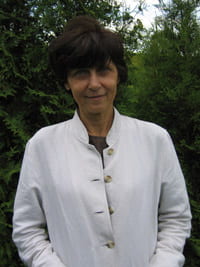 September 20, 5:00 pm: Opening of the interactive installation by Lidia Zielińska‘s Slices of Music (WA commission – “Little WA”). Cooperation: Zyta Kaleta, Rafał Zapała
September 20, 5:00 pm: Opening of the interactive installation by Lidia Zielińska‘s Slices of Music (WA commission – “Little WA”). Cooperation: Zyta Kaleta, Rafał Zapała
September 20, 10:30 pm: Piotr Roemer’s Soneostasis (WA commission) — Ensemble Phoenix Basel and Jürg Henneberger, conductor
September 21, 10:30 pm: Dominik Karski’s Certainty’s Flux — Karin Hellqvist – violin, live electronics and Keir Neuringer – saxophone, live electronics
 September 22, 4:00 pm: Grzegorz Pieniek’s Days to come, days gone by (WA commission) and Jacek Grudzień / Izabela Chlewińska’s Preparation for Change (ZKP Commission) — Sylvia Nopper – mezzo-soprano, Uroš Rojko – clarinet, Klara Tomljanovič – guitar, Luka Juhart – accordion, Włodzimierz Pawlik – piano, Izabela Chlewińska – dance/choreography, and Tomasz Bergmann – video projections
September 22, 4:00 pm: Grzegorz Pieniek’s Days to come, days gone by (WA commission) and Jacek Grudzień / Izabela Chlewińska’s Preparation for Change (ZKP Commission) — Sylvia Nopper – mezzo-soprano, Uroš Rojko – clarinet, Klara Tomljanovič – guitar, Luka Juhart – accordion, Włodzimierz Pawlik – piano, Izabela Chlewińska – dance/choreography, and Tomasz Bergmann – video projections
September 23, 7:30 pm (Andrzej Chłopecki in memoriam): Paweł Szymański‘s Epilogue and Paweł Mykietyn‘s Wax Music (Polish premiere). AUKSO – Chamber Orchestra of the City of Tychy, Piotr Nowak – trumpet, Aleksandra Rupocińska – harpsichord, Barbara Drążkowska – piano (co-author of Wax Music project), Tobias Weber –phonographs, Adelajda Merchán-Drążkowska – curator of Wax Music project, Marek Moś – conductor
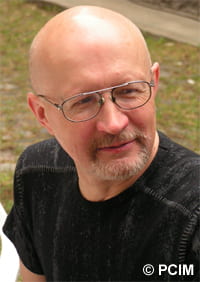 September 25, 7:30 pm: Rafał Augustyn‘s Tam. Music for Violin, Voices and Instruments, Zbigniew Bargielski‘s Concerto for Piano, Percussion and Symphony Orchestra (WA commission), and Stanisław Krupowicz‘s Machinae coelestes (WA and Space Research Centre PAS commission). Polish Radio Symphony Orchestra, Wrocław Philharmonic Choir, The Katowice City Singers’ Ensemble “Camerata Silesia,” TWOgether Duo: Magdalena Bojanowicz – cello, Maciej Frąckiewicz – accordion, Magdalena Szostak-Krupowicz – soprano, Christine Pryn – violin, Małgorzata Walentynowicz – piano, Jan Pilch – percussion, Stanisław Krupowicz and Marcin Rupociński – computer, and Renato Rivolta – conductor
September 25, 7:30 pm: Rafał Augustyn‘s Tam. Music for Violin, Voices and Instruments, Zbigniew Bargielski‘s Concerto for Piano, Percussion and Symphony Orchestra (WA commission), and Stanisław Krupowicz‘s Machinae coelestes (WA and Space Research Centre PAS commission). Polish Radio Symphony Orchestra, Wrocław Philharmonic Choir, The Katowice City Singers’ Ensemble “Camerata Silesia,” TWOgether Duo: Magdalena Bojanowicz – cello, Maciej Frąckiewicz – accordion, Magdalena Szostak-Krupowicz – soprano, Christine Pryn – violin, Małgorzata Walentynowicz – piano, Jan Pilch – percussion, Stanisław Krupowicz and Marcin Rupociński – computer, and Renato Rivolta – conductor
September 25, 10:30 pm: Sławomir Wojciechowski‘s Blind Spot. Neue Vocalsolisten and the Silesian String Quartet
 September 26, 7:30 pm: Joanna Woźny‘s as in a mirror, darkly. European Workshop for Contemporary Music, Kwartludium, and Rüdiger Bohn – conductor
September 26, 7:30 pm: Joanna Woźny‘s as in a mirror, darkly. European Workshop for Contemporary Music, Kwartludium, and Rüdiger Bohn – conductor
September 27, 4:00 pm (“A Study of Lights”): Tomasz Opałka‘s HemiSphere and Jan Oleszkowicz‘s Monologues. Warsaw Philharmonic Chamber Orchestra, Barbara Zakrzewska – voice, and Stanisław Winiarczyk – conductor
September 27, 10:30 pm: Michał Moc‘s Po-wer. Orkiestra Muzyki Nowej, Allison Bell –soprano, Theo Nabicht – metal contrabass clarinet, and Szymon Bywalec – conductor
In addition to the incredible list of premieres, there are other special features of the 2013 Warsaw Autumn Festival:
 Zimerman Performs Lutosławski (September 22) – In perhaps the most buzz-worthy event of the Festival, pianist Krystian Zimerman will give a rare performance in his home country with the Warsaw Philharmonic and conductor Jacek Kaspszyk. The concert marks the centenary of Witold Lutosławski’s birth with a performance of the composer’s Piano on exactly the 25th anniversary of the piece’s Polish premiere, which was given by Zimerman with Lutosławski on the podium in 1988 (pictured above)
Zimerman Performs Lutosławski (September 22) – In perhaps the most buzz-worthy event of the Festival, pianist Krystian Zimerman will give a rare performance in his home country with the Warsaw Philharmonic and conductor Jacek Kaspszyk. The concert marks the centenary of Witold Lutosławski’s birth with a performance of the composer’s Piano on exactly the 25th anniversary of the piece’s Polish premiere, which was given by Zimerman with Lutosławski on the podium in 1988 (pictured above)
- Little Warsaw Autumn (September 20-29) – The 2013 “Little WA” is 3rd edition of the Festival’s concerts, exhibits and events of contemporary music just for children. Recommended for ages 4-12
 “Witold Lutosławski’s Music on the Threshold of the 21st Century: Clarifications – Evaluations – Perspectives” (September 26-27) – This international scientific conference is one of the most important of the many fringe events taking place during the Festival. Hosted by the National Fryderyk Chopin Institute, it will feature such important international Lutosławski scholars as Charles Bodman Rae, Adrian Thomas, and Steven Stucky, among many others. For a full schedule, visit: chopin.nifc.pl
“Witold Lutosławski’s Music on the Threshold of the 21st Century: Clarifications – Evaluations – Perspectives” (September 26-27) – This international scientific conference is one of the most important of the many fringe events taking place during the Festival. Hosted by the National Fryderyk Chopin Institute, it will feature such important international Lutosławski scholars as Charles Bodman Rae, Adrian Thomas, and Steven Stucky, among many others. For a full schedule, visit: chopin.nifc.pl
[Sources: warszawska-jesien.art.pl, chopin.nifc.pl, onpolishmusic.com]
Poles Premiered At Gaudeamus Muziekweek
 The prestigious Gaudeamus Muziekweek 2013 Festival will take place from Sunday, September 1 through Sunday, September 8. This year’s edition will feature compositions by young Polish composers Mikołaj Laskowski and Dariusz Przybylski (World Premieres) and Kasia Głowicka.
The prestigious Gaudeamus Muziekweek 2013 Festival will take place from Sunday, September 1 through Sunday, September 8. This year’s edition will feature compositions by young Polish composers Mikołaj Laskowski and Dariusz Przybylski (World Premieres) and Kasia Głowicka.
On September 3 in the Zijdebalen Theater the latest work by Mikołaj Laskowski, entitled Na (2013), will be premiered by its commissioning ensemble, Orkest de Ereprijs. This composition was developed at the Orkest de Ereprijs’ annual Young Composers’ Meeting held in Apeldoorn, where budding composers are given the chance to work alongside the ensemble for a week. During the same September 3rd concert, the famous Orchestra of the 21st Century will perform Music in 3 parts by Kasia Głowicka.
A few days later, on September 6 in the RASA Center, the premiere of Chamber Concerto (2013) by Dariusz Przybylski will be performed by its commissioning ensemble, the Internationale Ensemble Modern Akademie. This 10-minute composition is written for 15 virtuoso instrumentalists, each of which is treated as a soloist. The form of the work has been subordinated to the presentation of the individual artists or groups of instruments, and consists of contrasting sections, with musical material derived from the construction of an interval. On the same day as the concert, there will be a discussion with the composers who are presented on the concert with Przybylski,
The Gaudeamus Muziekweek is an internationally renowned festival for young composers and new music. The festival has existed for over 60 years, but in 2011 the first edition in Utrecht took place.
September 3, 2013 | 9:30 pm
Premiere of Laskowski’s Na & performance of Głowicka’s Music in 3 parts
Zijdebalen Theater, Utrecht, the Netherlands
Information: Gaudeamus Muziekweek
September 6, 2013 | 5:00 pm
Premiere of Przybylski’s Chamber Concerto
RASA Center, Utrecht, the Netherlands
Information: Gaudeamus Muziekweek
[Sources: polmic.pl, muziekweek.nl]
Zubel Premiere In Germany
 On September 22 in the Hannover Staatsoper, the new work for large orchestra by Agata Zubel, entitled IN, will receive its World Premiere. The work will be performed by the Lower Saxony State Orchestra Hannover, conducted by Karen Kamensek.
On September 22 in the Hannover Staatsoper, the new work for large orchestra by Agata Zubel, entitled IN, will receive its World Premiere. The work will be performed by the Lower Saxony State Orchestra Hannover, conducted by Karen Kamensek.
IN for large orchestra was written in 2013 with a commission from Hannoverschen Gesellschaft für Neue Musik, in connection with the celebrations of the 100th anniversary of Witold Lutosławski’s birth. In addition to Agata Zubel’s work, the concert program will also include Karol Szymanowski’s Concerto for Violin and Orchestra, op. 35 and Piotr Tchaikovsky’s Symphony No. 6 in B minor “Pathetique”, op.74.
September 22, 2013 | 5:00 pm
Premiere of IN by Agata Zubel
Hannover Staatsoper, Hannover, Germany
[Source: pwm.com.pl]
Jan Ekier Celebrates 100 years!
 Jan Ekier’s significant role as a pianist, editor and pedagogue has made him the master of several generations of Poland’s musicians and musicologists. In recognition of his importance, he received Poland’s highest honor—the Order of the White Eagle—in 2010, and on August 29, 2013 this giant of the musical world celebrated his centenary.
Jan Ekier’s significant role as a pianist, editor and pedagogue has made him the master of several generations of Poland’s musicians and musicologists. In recognition of his importance, he received Poland’s highest honor—the Order of the White Eagle—in 2010, and on August 29, 2013 this giant of the musical world celebrated his centenary.
Born on the eve of World War I, Ekier placed 8th during the III Chopin International Competition in Warsaw held in 1937, and subsequently sat on the jury of that prestigious event nine times, between 1949 and 1995. He developed a laudable career as a pianist, performing across Europe, in Japan and throughout South America. But it was as editor-in-chief of the Chopin Institute’s National Edition of Chopin’s Works, which followed Paderewski’s long-standing Complete Edition as the leading publication of complete works, that Jan Ekier became an international musicological authority.
On August 29, Ekier’s 100th birthday was celebrated at an event hosted by the National Chopin Institute (NIFC) as part of the ‘Chopin and His Europe’Festival in Warsaw. The event started at noon with many laudatory remarks and awards bestowed upon the honoree by leaders of some of the Poland’s greatest cultural institutions, including: Dr. Zenon Butkiewicz, Director of the Dept. of National Cultural Institutions of the Polish Ministry of Culture and National Heritage; Ryszard Zimak, rector of the Fryderyk Chopin Music University; Grzegorz Michalski, President of the Witold Lutosławski Society; Andrzej Kosowski, Director of the Institute of Music and Dance; and Jerzy Kornowicz, President of the Polish Composers’ Union (ZKP). Also the celebratory book Jan Ekier – artysta stulecia [Jan Ekier – Artist of the Century] was presented by author Prof. Irena Poniatowska, as well as a biography and editions of works presented by PWM Editor-in-Chief, Dr. Daniel Cichy.
The ceremony was followed by a short recital of compositions by prof. Ekier, starting with his best-known work, Kolorowe melodie (1948), performed by Agnieszka Przemyk – piano. Also on the program were his set of songs, or “Pieśni,” which were performed by Adam Kruszewski – baritone and Ella Susmanek – piano.
The culmination of the celebrations was ten-hour marathon of Chopin works, played by up-and-coming young pianists and singers. For a full listing of the program and performers, see en.chopin.nifc.pl/festival/edition2013/concerts/day/15.
[Sources: pwm.com.pl, chopin.nifc.pl, thenews.pl, onpolishmusic.com, en.chopin.nifc.pl]
New Artistic Dir. for Warsaw Phil
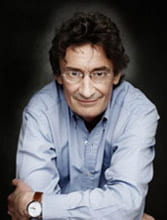 The Warsaw National Philharmonic has announced that, as of September 1, 2013, Maestro Jacek Kasprzyk has assumed the role of Artistic Director of Warsaw Philharmonic. Kasprzyk takes over the position from Maestro Antoni Wit who, over the course of his twelve-year tenure, brought much prestige to the Orchestra, including a Grammy Award for their June 2012 recording of Penderecki for Naxos (CD 8.572482).
The Warsaw National Philharmonic has announced that, as of September 1, 2013, Maestro Jacek Kasprzyk has assumed the role of Artistic Director of Warsaw Philharmonic. Kasprzyk takes over the position from Maestro Antoni Wit who, over the course of his twelve-year tenure, brought much prestige to the Orchestra, including a Grammy Award for their June 2012 recording of Penderecki for Naxos (CD 8.572482).
From a National Phil press release:
Jacek Kasprzyk graduated in conducting, music theory and composition from the State Higher School of Music in Warsaw (1975). In the same year he made his debut in the Grand Theatre – Polish National Opera in Warsaw conducting a première of Mozart’s Don Giovanni. In 1976 he was appointed guest conductor to the Deutsche Oper am Rhein in Düsseldorf. A year later he won the 3rd prize in the prestigious Herbert von Karajan Conducting Competition in Berlin, which led to his debuts in Berlin and New York Philharmonic in 1978. In the same year he became first conductor, and two years later – music director of the Great Orchestra of the Polish Radio and Television (now – NOSPR), with which he toured many European countries.
In 1982 he took residence in London, making his debut in the Royal Festival Hall with Philharmonia Orchestra. He later collaborated with the Chamber Orchestra of Europe and Capital Radio’s Wren Orchestra (as its principal conductor) and made guest appearances with e.g. Philharmonia Orchestra, London Symphony Orchestra, London Philharmonic, the Royal Philharmonic, the Royal Scottish National, BBC Scottish Symphony and BBC National Orchestra of Wales, with which he gave a concert in 1984 at BBC Proms. He also led orchestras in the USA (Cincinnati Symphony, San Diego Symphony), Canada (Calgary Philharmonic, Winnipeg Symphony), Japan (Yomiuri Nippon Symphony, Tokyo Philharmonic) as well as Hong Kong Philharmonic and New Zealand Symphony Orchestra.
In 1998 Jacek Kasprzyk took up the posts of artistic and music director, and in 2002 – also that of managing director of the Grand Theatre – Polish National Opera in Warsaw. In this theatre he staged new productions of, among others, Mozart’s Don Giovanni, Bartók’s Bluebeard’s Castle and Miraculous Mandarin, Szymanowski’s King Roger, Penderecki’s Ubu Rex, Berlioz’s Damnation of Faust, R. Strauss’s Salome and Berg’s Wozzeck. He appeared with the Grand Theatre ensembles at the Festival in Beijing, in the Bolshoi Theatre in Moscow, Sadler’s Wells Theatre in London, at the Hong Kong Arts Festival and Festival Castell de Peralada in Spain, as well as touring Japan three times. He has conducted spectacles in such renowned opera houses as the English National Opera, Opera North in Leeds, Deutsche Oper am Rhein in Düsseldorf, Opéra Comique in Paris, Opéra de Lyon, theatres in Bordeaux, Zurich and Stockholm, Teatro de la Maestranza in Seville, Teatro Colón in Buenos Aires, and others. In 2006-08 he regularly collaborated with the ensembles of the Lithuanian National Opera, with which he performed at the festivals in Ljubljana, Ravenna and Tel Aviv.
The Grand Theatre’s production of King Roger under his baton was presented as part of the special I, CULTURE project at the inauguration of Poland’s Presidency of the EU Council in July 2011. Another recent highlight of Jacek Kaspszyk’s career were his concerts with the Orchestra of the Age of Enlightenment at the Festival ‘Chopin and His Europe’.
In 2011 the artist received the Elgar Society Medal for his outstanding interpretations of that composer’s musical works. The Medal had previously been granted to such eminent musicians as Vladimir Ashkenazy, Andrew Litton or Leonard Slatkin.
Since 2006, Jacek Kasprzyk has been the artistic director of Witold Lutosławski Philharmonic Symphony Orchestra in Wrocław. In 2009-12 he was also music director of the Polish National Radio Symphony Orchestra (PNRSO) in Katowice.
The artist’s most recent contracts were related to his return to Wiener Symphoniker at the Bregenz Festival in 2012, concerts at the Festival de la Roque d’Anthéron and appearances with the Orchestra della Svizzera Italiana at the Lugano Festival. He also regularly gives performances in the Far East. He opened the 2011-12 season with China Philharmonic and Guangzhou Symphony and gave his first concert with the Malaysian Philharmonic Orchestra (with the pianist Stephen Kovacevich). In the season 2012-13 he returned to Malaysia, made his debut with KBS Symphony in Seoul, gave concerts in Great Britain with Opera North (Leeds), conducted Shanghai Symphony Orchestra and China Philharmonic, appeared at the Lugano Festival and toured Great Britain with the PNRSO.
Jacek Kaspszyk’s extensive discography includes a recording of Rossini’s Il signor Bruschino with Warsaw Chamber Opera and Baird’s Concerto lugubre with the Great Orchestra of the Polish Radio (Edison Award), as well as Collins Classics releases featuring four of London’s symphony orchestras: London Symphony (Mussorgsky’s Pictures at an Exhibition, Mahler’s Symphony No. 1 and R. Strauss’s Also sprach Zarathustra), Philharmonia Orchestra (Rachmaninov’s Symphony No. 2 and Verdi’s Operatic Overtures), London Philharmonic Orchestra (works by J. Strauss (son) and Schubert’s 5th and 8th Symphonies) as well as the Royal Philharmonic (Puccini’s Interludes).
The artist regularly collaborates with Martha Argerich, e.g. at the Festival in Lugano. 2010 saw the release of their album with music by Chopin. With Wrocław Philharmonic Symphony Orchestra, Jacek Kaspszyk made a CD featuring Lutosławski’s 2nd and 4th Symphonies which was awarded the Fryderyk Award of the Polish music record industry in 2011. He also made a number of acclaimed recordings with the ensembles of the Grand Theatre – Polish National Opera. His interpretation of Szymanowski’s King Roger (released by CD Accord) was nominated for BBC Music Magazine’s Disc of the Year award. A Gramophone magazine reviewer wrote about that release: “On every count, including pennies, this sweeps the board […] under Kaspszyk it makes a mesmerizing impression.”
[Source: filharmonia.pl]
I, Culture Orchestra—2013 Edition
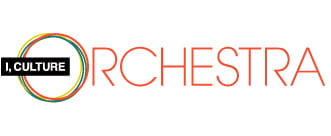 On August 26 in Gdańsk, 99 young musicians from Poland and countries of the Eastern Partnership began this year’s tour as the I, Culture Orchestra. The I, Culture Orchestra (ICO) was initiated in 2011 by the Adam Mickieiwcz Institute in Warsaw as part of the cultural program of Poland’s EU Council Presidency, which employed art and cultural activities in deepening relations between European Union citizens and those of Eastern Partnership countries. Since that initial installment of the ICO project, a new group of young instrumentalists and their conductor are selected each year in auditions open to musicians from Armenia, Azerbaijan, Belarus, Georgia, Moldavia, Poland and Ukraine—the nations of the Eastern Partnership.
On August 26 in Gdańsk, 99 young musicians from Poland and countries of the Eastern Partnership began this year’s tour as the I, Culture Orchestra. The I, Culture Orchestra (ICO) was initiated in 2011 by the Adam Mickieiwcz Institute in Warsaw as part of the cultural program of Poland’s EU Council Presidency, which employed art and cultural activities in deepening relations between European Union citizens and those of Eastern Partnership countries. Since that initial installment of the ICO project, a new group of young instrumentalists and their conductor are selected each year in auditions open to musicians from Armenia, Azerbaijan, Belarus, Georgia, Moldavia, Poland and Ukraine—the nations of the Eastern Partnership.
The orchestra will be on tour from August 26 to September 6, 2013. They will play concerts in Gdańsk (26 August), Rejkajavik (29 August), Gothenburg (31 August), Copenhagen (2 September), Tallinn (3 September), and Kiev (4 September). The tour program includes the symphonic ballade Grażyna by Ukrainian composer Boris Lyatoshynsky (his op. 58, from 1955), Prokofiev’s Piano Concerto No. 1, op. 10, Lutosławski’s Cello Concerto and Bartók’s Concerto for Orchestra.
 The I, Culture Orchestra played under the baton of Sir Neville Marriner in 2011 for their inaugural season, and under Maestro Paweł Kotla. The ensemble of young musicians in 2012 was conducted by Ilyich Rivas. ICO’s 2013 formation performs with Kirill Karabits, chief conductor of the Bournemouth Symphony for the past four seasons and recipient of the 2013 RPS Conductor of the Year Award. Maestro Karabits has collaborated with the Royal Philharmonic, the London Philharmonic and the Orchestre Philharmonique de Radio France, in spite of his young age, and has performed at festivals including the BBC Proms, the Wagner Festival in Geneva and the Ludwig van Bethoveen Easter Festival 2013 in Warsaw.
The I, Culture Orchestra played under the baton of Sir Neville Marriner in 2011 for their inaugural season, and under Maestro Paweł Kotla. The ensemble of young musicians in 2012 was conducted by Ilyich Rivas. ICO’s 2013 formation performs with Kirill Karabits, chief conductor of the Bournemouth Symphony for the past four seasons and recipient of the 2013 RPS Conductor of the Year Award. Maestro Karabits has collaborated with the Royal Philharmonic, the London Philharmonic and the Orchestre Philharmonique de Radio France, in spite of his young age, and has performed at festivals including the BBC Proms, the Wagner Festival in Geneva and the Ludwig van Bethoveen Easter Festival 2013 in Warsaw.
Soloists with the ICO for the 2013 season are cellist Truls Mørk and pianist Khatia Buniatishvili. Mørk is known for his instrumental skills and for his wide array of interests in interpreting contemporary and classical cello compositions. He presented the world premiere of Pavel Haas’ Cello Concerto, has performed the Concerto Grosso of Krzysztof Penderecki and may be best known for interpreting Brahms’ Double Concerto for Violin and Cello and Rachmaninoff’s Cello Sonatas. During the Lutosławski Year 2013, he has toured internationally as soloist in the composer’s renowned Cello Concert with Esa-Pekka Salonen and the Symphonia Orchestra, including concerts in London at Royal Albert Hall and in Warsaw at the National Philharmonic. His interpretation was quoted as “a powerful, defiant opera without word” in Andrew Clark’s review for the Financial Times.
Khatia Buniatishvili received enthusiastic receptions for solo recitals and chamber concerts at London’s Wigmore Hall, the Concertgebouw in Amsterdam and the Viennese Musikverein. She debuted in the U.S. in 2008 with a performance of Chopin‘s Piano Concerto No. 2 at Carnegie Hall. Buniatishvili was presented with the BBC Three Programme’s Artists of the New Generation title, and was honored with the Rising Star award of the Musikverein and Konzerthaus in Vienna in the 2011-12 season. The pianist evokes the legendary names of Argerich, Gulda, Richter and Rachmaninoff as her masters. Her playing has a distinct warm and at times sombre style, which reflects the young instrumentalist’s fascination with folk music in her native Georgia.
The instrumental tutors for the ICO in 2013 are Zsolt-Tihamér Visontay (I violin), Clare Thompson (II violin), Yuko Inoue (viola), Paul Cortese (viola), David Watkin (cello), John Heley (cello), Leon Bosch (base), Samuel Coles (flute), Philip Nodel (oboe), Robin O’Neill (bassoon), Jeff Bryant (horn), Alistair Mackie (trumpet), Dan Jenkins (trombone), Marie-Pierre Chavaroche (harp), Damien Bassman (percussion) and Andrew Cresci (tuba).
A complete list of the members of the I, Culture Orchestra 2013 is available on their website, www.orchestra.iam.pl.
[Source: culture.pl]
New Interpretations, 4th Edition
 The 4th edition of New Interpretations, a program of the Institute of Music and Dance (IMiT), has been launched. The composers highlighted in this 4th edition are Marcin Mielczewski, Juliusz Zarębski and Sir Andrzej Panufnik, whose centenary will be celebrated in 2014. The 4th edition covers concerts taking place from 1 January to 31 December 2014.
The 4th edition of New Interpretations, a program of the Institute of Music and Dance (IMiT), has been launched. The composers highlighted in this 4th edition are Marcin Mielczewski, Juliusz Zarębski and Sir Andrzej Panufnik, whose centenary will be celebrated in 2014. The 4th edition covers concerts taking place from 1 January to 31 December 2014.
New Interpretations is dedicated to Polish musicians pursing an individual artistic career or working as part of non-institutionalized ensembles, and aims to promote performances of Polish music, especially works which are less frequently present in Polish concert repertoires. As part of the programme, the Institute of Music and Dance provides partial funding towards the remuneration of artists who include for the first time in their repertoire pieces by the chosen composers and perform them publically. The program is dedicated to the music community in Poland.
Detailed information and the programme’s rules and regulations are available at www.imit.org.pl in the Programmes section.
[Sources: imit.org.pl]
Blecharz In China
 From September 8-15, young Polish composer Wojciech Blecharz will be bringing his skills to workshops for composers at the Chinese Conservatory of Music. Blecharz will also cooperate with the Conservatory’s chamber orchestra, the Forbidden City Chamber Orchestra (FCCO). Through these workshops, Blecharz will learn about traditional Chinese instruments and how to use them in his own work. Then he will collaborate with the FCCO musicians to make a new composition scheduled to be premiered by the orchestra at the Warsaw Autumn Festival in 2014. The project was set in motion two years ago, and has consisted of three week-long visits by composers to China.
From September 8-15, young Polish composer Wojciech Blecharz will be bringing his skills to workshops for composers at the Chinese Conservatory of Music. Blecharz will also cooperate with the Conservatory’s chamber orchestra, the Forbidden City Chamber Orchestra (FCCO). Through these workshops, Blecharz will learn about traditional Chinese instruments and how to use them in his own work. Then he will collaborate with the FCCO musicians to make a new composition scheduled to be premiered by the orchestra at the Warsaw Autumn Festival in 2014. The project was set in motion two years ago, and has consisted of three week-long visits by composers to China.
The Forbidden City Chamber Orchestra was founded by 11 musicians in Beijing, each specialized in ancient Chinese instruments. The work of the orchestra has spanned traditional music with a classic esthetic and innovative and individualized new music. In 2011, the orchestra toured Warsaw and Krakow during Chinese Culture Days, which like this current collaboration with Blecharz, was organized by the Adam Mickiewicz Institute.
Four Polish composers were present during previous workshops in May: Tadeusz Wielecki, Jarosław Siwiński, Paweł Hendrich and Piotr Roemer. Lidia Zielińska had joined the group by the end of the collaboration with FCCO. Their visits were also organized by the Adam Mickiewicz Institute.
September 8-15, 2013
Wojciech Blecharz – workshops in Beijing
Chinese Conservatory of Music, Beijing, China
Information: culture.pl
[Source: culture.pl]
Marcin Dylla’s Stellar Rise
A few months ago, Polish guitarist Marcin Dylla held concerts in the United States and in Mexico City. Now he will perform and lead workshops at the International Guitar Festival in Brno, Czech Republic.
Born in Chorzów, Marcin Dylla began playing the guitar at eight years old. Today he experiences unprecedented success. Many of his recitals have been issued for release on DVD and CD platforms (see Naxos CD 8.572060), and these have been well received. A few months ago the Washington Post hailed him as “one of the most talented guitarists in the world.” Richard Storm from the Herald Tribune even wrote “Amazing is a word that is abused by this day and age, but the Polish guitarist restored its meaning during his absolutely stunning performance.”
 On September 16, Dylla will perform at the International Guitar Festival in Brno. His concert will be the final performance scheduled for the Czech festival. This series of concerts began in 1992 with an intimate meeting between a group of three soloists and 30 participants. The festival in the contemporary world has been widely recognized and invites more than 150 guitarists from around the world to perform and participate in workshops every year.
On September 16, Dylla will perform at the International Guitar Festival in Brno. His concert will be the final performance scheduled for the Czech festival. This series of concerts began in 1992 with an intimate meeting between a group of three soloists and 30 participants. The festival in the contemporary world has been widely recognized and invites more than 150 guitarists from around the world to perform and participate in workshops every year.
The most recent season has brought Marcin Dylla much success. His North American debut was held at New York’s Carnegie Hall and was followed by a tour on both the East and West coasts of the United States. On his European tour he made stops at prestigious venues such as the Vienna Schubertsaal and also participated in Germany’s Koblenz Guitar Festival.
September 16, 2013
Marcin Dylla – performance and workshops
International Guitar Festival, Brno, Czech Republic
[Sources: Filip Lech for culture.pl, guitarcz.com]
Honoring Madeleine Forte’s 75th Birthday
 On September 15, pianists from Hungary, Poland, and the U.S. will gather at Yale University’s Sudler Hall to celebrate the 75th birthday of Professor Emerita Madeline Forte. Madeleine Forte is a Graduate of the Frederic Chopin Academy in Warsaw, class of Prof. Zbigniew Drzewiecki (1965). During her career, Forte performed as a pianist on five continents in collaboration with her husband, Yale Battell Professor of Music Theory Emeritus Allen Forte.
On September 15, pianists from Hungary, Poland, and the U.S. will gather at Yale University’s Sudler Hall to celebrate the 75th birthday of Professor Emerita Madeline Forte. Madeleine Forte is a Graduate of the Frederic Chopin Academy in Warsaw, class of Prof. Zbigniew Drzewiecki (1965). During her career, Forte performed as a pianist on five continents in collaboration with her husband, Yale Battell Professor of Music Theory Emeritus Allen Forte.
Original compositions by János Kéry from Hungary, and Krystian Kielb, Rector of the Wrocław Karol Lipiński Academy in Warsaw, have been written for the occasion. Works by Szymanowski, Bacewicz, Rachmaninov, Liszt, and Chopin will also be on the program. The concert will be performed by Forte’s former students Anna Rutkowska-Schock, Anna Kijanowska and Robyn Riggers (who also performed the ‘Mad About Madeline’ program at Boise State University in 2011), as well as Forte herself.
Sunday, September 15 | 3:00 p.m.
Piano Celebration of Madeleine Forte’s 75th birthday
Yale University – Sudler Hall
100 Wall Street, New Haven, CT 06520
FREE ADMISSION
[Source: press release]
Janusz Prusinowski Trio US Tour 2013
What struck me right away about this music was its amazing ability to mix the feel and power of village dance music with the personal contemporary sensibilities of the players. (…) The addition of wind and brass to the Trio’s sound really pushes their music into another realm. Listen to the music about three minutes in and hear the amazing resemblance to some of those classic jazz improv tracks from the late ’60s and early ’70s.
— Michal Shapiro, Huffington Post, on the WOMEX 2012 performance
 The Janusz Prusinowski Trio is a group of musicians who follow in the traditions of the village masters they have personally learned from, but they are also an avant-garde band with their own characteristic sound and language of improvisation. They combine music with dance, and the archaic with the modern. The Trio’s unique style is distilled from their informed reinterpretations of central Poland’s village music. They bring the mazurka—sung, played, danced, and improvised—to a new, youthful audience. Listening to the Trio you can hear how the traditional music of Polish villages echoes or is echoed by a variety of genres: the music of Chopin in its melodic pattern and the use of rubato, a shared love of improvisation with blues and jazz, a tonal sophistication reminiscent of twentieth-century classical and free improvisation, and the energy and propulsion of rock music.
The Janusz Prusinowski Trio is a group of musicians who follow in the traditions of the village masters they have personally learned from, but they are also an avant-garde band with their own characteristic sound and language of improvisation. They combine music with dance, and the archaic with the modern. The Trio’s unique style is distilled from their informed reinterpretations of central Poland’s village music. They bring the mazurka—sung, played, danced, and improvised—to a new, youthful audience. Listening to the Trio you can hear how the traditional music of Polish villages echoes or is echoed by a variety of genres: the music of Chopin in its melodic pattern and the use of rubato, a shared love of improvisation with blues and jazz, a tonal sophistication reminiscent of twentieth-century classical and free improvisation, and the energy and propulsion of rock music.
The band has performed in most European countries, Asia, Canada, and the USA (including Carnegie Hall and the Chicago Symphony Center). The Trio has shared the stage with such renowned artists as Janusz Olejniczak, Tomasz Stańko, and Alim Qasimov. They have released two critically-acclaimed albums: Mazurkas (2008) and Heart (2010). In October of 2012, the Prusinowski Trio was officially selected to perform as part of main showcase of the prestigious world music fair WOMEX 2012 (World Music Expo) in Thessaloniki.
The Prusinowski Trio will perform in the following lineup: Janusz Prusinowski – fiddle, voice, dulcimer, Polish accordion; Piotr Piszczatowski – baraban drum, frame drum; Michał Żak – wooden flutes, shawm, clarinet; Piotr Zgorzelski – folk bass, dancing; Szczepan Pospieszalski – trumpet.
US Tour 2013 & new album promo for ‘Knee-deep in Heaven’:
September 22, 2013
15th Annual World Music Festival: Chicago
Chicago Cultural Center
78 E Washington St, Chicago, IL
www.worldmusicfestivalchicago.org
September 25, 2013
Legion Arts – CSPS Hall
1103 Third St SE, Cedar Rapids, IA
www.legionarts.org
September 27- 28, 2013
Lotus World Music & Arts Festival
103 N College Ave, Bloomington, IN
www.lotusfest.org
September 29, 2013 | 3:00pm
Music at Lily Pads
27 North Road, Peace Dale, RI
www.musicatlilypads.org
October 4, 2013 | 7:15pm (doors open at 6:30)
DROM
85 Avenue A (between 5th & 6th Sts.), New York, NY 10009
www.dromnyc.com
October 5, 2013 | 7:00pm
Intimate House Concert – food & drinks available
Suggested donation $20, paid at the door
The Beautiful Hills of San Diego, California
Address & details: Craig S. Hyman, craigshyman@gmail.com
October 6, 2013 | 7:00pm
Yoshi’s San Francisco
1330 Fillmore Street, San Francisco, CA
www.yoshis.com/sanfrancisco
October 7, 2013
School of Music and Dance – San Diego State University
5500 Campanile Drive, San Diego, CA
Co-sponsored with the Center for World Music
www.music.sdsu.edu
October 9, 2013
Southwestern College
900 Otay Lakes Rd, Chula Vista, CA
Co-sponsored with the Center for World Music
www.music.swccd.edu
October 10, 2013
European Jazz @ UCLA
University of California in Los Angeles – Schoenberg Hall
445 Charles E Young Drive East, Los Angeles, CA
www.music.ucla.edu
October 11, 2013 | 6:30pm
Folk Dance Center
Dancing Unlimited
4569 30th St., San Diego, CA
Co-sponsored with the Center for World Music
www.folkdancecenter.org
www.centerforworldmusic.org
October 12-13, 2013
Richmond Folk Festival
On Downtown Richmond’s Riverfront, Richmond, VA
www.richmondfolkfestival.org
October 16, 2013
The John F. Kennedy Center for the Performing Arts
Millenium Stage
2700 F St NW, Washington, DC
www.kennedy-center.org
This tour is presented by local venues and festivals, in collaboration with the Polish Cultural Institute New York.
[Source: facebook.com]
Polish Jazz Abroad
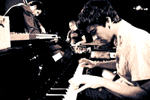 Marcin Masecki (pictured at left), Maciej Obara, Piotr Damasiewicz and Gerard Lebik will perform in Tokyo’s Cotton Club during the Tokyo Jazz Festival, one of the most important such festivals in Asia. The visit of these Polish musicians is co-organized by the Adam Mickiewicz Institute in Warsaw and the Jazzopad Festival in Wrocław. Their Tokyo appearances are scheduled for September 6-8. Japanese jazz ensembles will in turn visit Wrocław in November to participate in the Jazzopad concerts there.
Marcin Masecki (pictured at left), Maciej Obara, Piotr Damasiewicz and Gerard Lebik will perform in Tokyo’s Cotton Club during the Tokyo Jazz Festival, one of the most important such festivals in Asia. The visit of these Polish musicians is co-organized by the Adam Mickiewicz Institute in Warsaw and the Jazzopad Festival in Wrocław. Their Tokyo appearances are scheduled for September 6-8. Japanese jazz ensembles will in turn visit Wrocław in November to participate in the Jazzopad concerts there.
 Earlier in August, Polish musicians of the Motion Trio performed at the Red Sea Jazz Festival, alongside Branford Marsalis, Ester Rada, Nicholas Payton and the Avishai Cohen trio. The Red Sea Jazz Festival dates back to 1987 and has taken the role of presenting the legends of jazz as well as upcoming musicians and artists that offer innovative and rejuvenating insights into this genre of music. One of the main initiators of Motion Trio’s visit was the Polish Institute in Tel Aviv.
Earlier in August, Polish musicians of the Motion Trio performed at the Red Sea Jazz Festival, alongside Branford Marsalis, Ester Rada, Nicholas Payton and the Avishai Cohen trio. The Red Sea Jazz Festival dates back to 1987 and has taken the role of presenting the legends of jazz as well as upcoming musicians and artists that offer innovative and rejuvenating insights into this genre of music. One of the main initiators of Motion Trio’s visit was the Polish Institute in Tel Aviv.
The Red Sea Jazz Festival occurs twice a year, in winter and summer, and this is Motion Trio’s second time performing at the Festival. Their concerts were held in the port city of Eilat on the Red Sea on August 18 and 19, 2013, with sets include their original compositions. In 2007 they performed on the most famous beach in the world, the Copacabana, with the Municipal Theatre Orchestra of Rio de Janeiro under the guidance of Krzesimir Dębski.
September 6-8
Marcin Masecki, Maciej Obara, Piotr Damasiewicz & Gerard Lebik in Tokyo
Cotton Club, Tokyo, Japan
Information: Tokyo Jazz Festival
[Sources: Filip Lech for culture.pl, culture.pl]
Kosciuszko FDN Chopin Piano Competition
 The Kosciuszko Foundation Chopin Piano Competition was established in 1949, in honor of the hundredth anniversary of the death of Frederic Chopin. The inauguration took place at the Kosciuszko Foundation House in New York City, with Witold Malcuzynski as guest artist, and Abram Chasins, composer and music director of the New York Times Radio Stations, presiding. Over the years, many outstanding musicians have been associated with the competition including Van Cliburn, Ian Hobson, and Murray Perahia. Today the Kosciuszko Foundation Chopin Competition continues to encourage gifted young pianists to further their studies, and to perform the works of Polish composers, with prizes ranging from $1,500 – $5,000.
The Kosciuszko Foundation Chopin Piano Competition was established in 1949, in honor of the hundredth anniversary of the death of Frederic Chopin. The inauguration took place at the Kosciuszko Foundation House in New York City, with Witold Malcuzynski as guest artist, and Abram Chasins, composer and music director of the New York Times Radio Stations, presiding. Over the years, many outstanding musicians have been associated with the competition including Van Cliburn, Ian Hobson, and Murray Perahia. Today the Kosciuszko Foundation Chopin Competition continues to encourage gifted young pianists to further their studies, and to perform the works of Polish composers, with prizes ranging from $1,500 – $5,000.
All applicants must be between the ages of 16 and 26 as of October, 2013. Deadline for submission to the 2013 Competition: September 20, 2013. The Competition will be held on October 11-12, 2013 at the Kosciuszko Foundation House in New York City. This year’s Jury is comprised of: Chairman of the Jury – Prof. Roy Eaton (Manhattan School of Music), Prof. Anna Kijanowska (The College of William and Mary in Virginia), and Prof. Jerome Rose (Mannes College The New School for Music).
For more information and the complete set of rules and repertoire requirements, visit www.thekf.org/programs/competitions/chopin/.
[Sources: facebook.com, thekf.org]
Roma Int’l Piano Competition
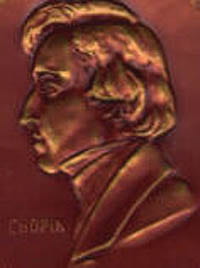 The Associazione “Fryderyk Chopin” in cooperation with the Cuomo Foundation is organizing the XXIII Roma International Piano Competition 2013, to be held from November 1-11, 2013. Deadline for applications: October 14, 2013.
The Associazione “Fryderyk Chopin” in cooperation with the Cuomo Foundation is organizing the XXIII Roma International Piano Competition 2013, to be held from November 1-11, 2013. Deadline for applications: October 14, 2013.
The competition is held in three different sections: Soloists, Duos, and “Chopin Prize” competitors. Soloist sections (1 round): “A” competitors must be born in or since 1994, and “B” competitors must be born in or since 1988. Duo Sections (1 round): “Four Hands” and “Two Pianos” competitors must be born in or since 1979. “Chopin Prize” competitors must be born in or since 1979 (3 rounds – last with orchestra).
Information on repertoire, prizes and applications is available on: www.chopinroma.it. Also see: www.facebook.com/chopinroma (news, pictures, videos, links) and www.youtube.com/user/RomaPianoCompetition
[Source: press release]
Ameryka: A Work Of Theater, Music & Movement
On the evening of Saturday, September 7 in Riverside, Nancy Keystone will talk about the play Ameryka that she wrote and directed. During the same evening, an ensemble of professional American actors from the Critical Mass Performance Group will perform the play. Klub PIE (Poles in the Inland Empire) will host the event and provide historical and cultural context. The program will be presented in English.
 Poland’s epic struggle for independence culminated in 1989 when Lech Walesa became the first popularly elected president of Poland. The idea for Ameryka was sparked two decades later, during Keystone’s first visit to Poland in 2009. There she came across a 1989 “Solidarity” election poster featuring a black-and-white photograph of Gary Cooper as Sheriff Will Kane from the 1957 film High Noon. Striding against a stark white background beneath a large red “Solidarity” logo, Kane also wears the logo above his sheriff’s star and holds in his hand, instead of a gun, an election ballot. The bottom of the poster reads, in Polish: “At high noon, June 4, 1989.”
Poland’s epic struggle for independence culminated in 1989 when Lech Walesa became the first popularly elected president of Poland. The idea for Ameryka was sparked two decades later, during Keystone’s first visit to Poland in 2009. There she came across a 1989 “Solidarity” election poster featuring a black-and-white photograph of Gary Cooper as Sheriff Will Kane from the 1957 film High Noon. Striding against a stark white background beneath a large red “Solidarity” logo, Kane also wears the logo above his sheriff’s star and holds in his hand, instead of a gun, an election ballot. The bottom of the poster reads, in Polish: “At high noon, June 4, 1989.”
“When I saw this poster, I was struck by the question of how this supremely iconic American image could hold such power for the people of Poland, how it helped rally citizens to the voting booth,” Keystone recalled. “What did this say about the relationship between Poland and the U.S.?”
Keystone has since made four more trips to Poland, and began working on Ameryka with Critical Mass Performance Group in June 2010. The work combines Keystone’s own ongoing examination of democracy and the American experience with her discovery of a vast universe of associations between the United States and Poland.
Performed by a cast of nine playing multiple roles, the multi-layered narrative focuses on three eras: the late eighteenth century, the 1950s–1960s, and the 1980s. It explores the transmission of ideas through time and space and, as Keystone puts it, “individual acts that shift the avalanche of history.”
Ameryka detonates the remarkable connections between the U.S. and Poland in an original, ensemble-created theatre work. It focuses on four eras: late 18th c., 1950s-60s, the 1980s, and the post-9/11 period. It upends mythic figures and ideas (Thomas Jefferson & Tadeusz Kościuszko, the American West, “liberty and justice for all”), examines America’s legacy of slavery, and illuminates previously untold stories (black jazz musicians on State Department tour to Poland, female leaders of Polish Solidarity, post-9/11 CIA black-ops site in Poland). Through provocative juxtapositions and bold theatrical forms, Ameryka investigates the transmission of radical ideas of freedom and democracy across time and space—from the United States’ founding documents, to Poland, and back again—and the courageous people who act on those ideas, against opposing forces, to shift the avalanche of history.
The piece is a kaleidoscopic composition of text, music, movement and image, created by Nancy Keystone and Critical Mass Performance Group in Los Angeles. The Klub PIE presentation will outline the characters, events and themes of Ameryka, and describe the unique development process, which is bringing it to life.
Saturday, September 7, 2013 | 7:00 pm (doors open at 6:30 pm)
Nancy Keystone and Ameryka, hosted by Klub PIE
Residence of Renata Dylewska & Piotr Górecki
5510 Via Dos Cerros, Riverside, CA 92507
[Sources: press release, broadwayworld.com]
Polish Violin Music Making The Rounds
 Kinga Augustyn, violin and Matthieu Cognet, piano will perform the first Arnold Schwartz Memorial concert of the season at the Little Church in New York City on Wednesday, September 11. Entitled “Remembering,” the program includes by J.S. Bach, Drożdżewski, Paderewski, Noskowski, and Prokofiev. This concert will mark the New York premiere of Two Caprices (1990) by Piotr Drożdżewski.
Kinga Augustyn, violin and Matthieu Cognet, piano will perform the first Arnold Schwartz Memorial concert of the season at the Little Church in New York City on Wednesday, September 11. Entitled “Remembering,” the program includes by J.S. Bach, Drożdżewski, Paderewski, Noskowski, and Prokofiev. This concert will mark the New York premiere of Two Caprices (1990) by Piotr Drożdżewski.
The Les Claires Duo—Kinga Augustyn, violin and Alexandra Snyder Dunbar, harpsichord—also performed the Tennessee premiere of the Two Caprices (1990) by Drożdżewski during their “Mostly Baroque” program on Friday, August 30, 2013 at the St. John Catholic Church in Memphis. The recital program also included works by J.S. Bach, H. D’Anglebert, G.F. Handel, and A. Corelli.
Two Caprices (1990) by Drożdżewski was recorded for the first time on Augustyn’s recent release, “Polish Violin Music” (Naxos 9.70192).
Wednesday, September 11, 2013 | 7:30 pm
Augustyn plays Drozdzewski, Paderewski, Noskowski and more
The Church of the Transfiguration “The Little Church Around the Corner”
1 East 29th Street, New York, New York 10016
Tickets $25/ $15 students & seniors
Information: www.littlechurch.org
[Source: press release]
Dancing Chopin With Igor Lipinski
 On Sunday, September 29, the Paderewski Symphony Orchestra present their program Dancing Chopin. The concert will include most beautiful pieces of Chopin’s music interpreted
On Sunday, September 29, the Paderewski Symphony Orchestra present their program Dancing Chopin. The concert will include most beautiful pieces of Chopin’s music interpreted
by extraordinary pianist Igor Lipiński (who performed at the 2012 Paderewski Festival), in collaboration with the electrifying members of the AL Dancers and choreographer Agnieszka Laska.
Saturday, September 28 @ 10:00 AM
Sunday, September 29 @ 3:00 PM
“Dancing Chopin” with Igor Lipinski & ALD
Copernicus Center –
5216 W Lawrence Ave., Chicago, IL 60603
Information: pasochicago.org
Tickets: www.vendini.com
Awards
Legion of Honor for Kilar
 The President of France, François Hollande, recognized Polish composer Wojciech Kilar with the Knight of the Legion of Honor Order Award in June 2013, citing the composer’s “unprecedented contribution to world culture and his efforts in building a cultural relationship between Poland and France.” Established by Napoleon Bonaparte in 1802, this distinction has been given to some of the most prominent Polish nationals, including Ignacy Jan Paderewski, Karol Szymanowski, Cyprian Godebski, Tadeusz Boy-Żeleński, Witold Doroszewski, Władysław Anders, and Olga Boznańska, among others.
The President of France, François Hollande, recognized Polish composer Wojciech Kilar with the Knight of the Legion of Honor Order Award in June 2013, citing the composer’s “unprecedented contribution to world culture and his efforts in building a cultural relationship between Poland and France.” Established by Napoleon Bonaparte in 1802, this distinction has been given to some of the most prominent Polish nationals, including Ignacy Jan Paderewski, Karol Szymanowski, Cyprian Godebski, Tadeusz Boy-Żeleński, Witold Doroszewski, Władysław Anders, and Olga Boznańska, among others.
[Source: pwm.com.pl]
Sikora Receives The Neptun Award
 In an August 23 ceremony, composer Elżbieta Sikora was honored with the Neptun Award given by the President of the City of Gdańsk during the Solidary of Arts Festival. Sikora’s music was praised for her ability to hear “…emotions and moods of the soul” as well as for transporting these phenomena to the world of musical sound. Janusz Głowacki and Andrzej Dudziński were the two other recipients of this award.
In an August 23 ceremony, composer Elżbieta Sikora was honored with the Neptun Award given by the President of the City of Gdańsk during the Solidary of Arts Festival. Sikora’s music was praised for her ability to hear “…emotions and moods of the soul” as well as for transporting these phenomena to the world of musical sound. Janusz Głowacki and Andrzej Dudziński were the two other recipients of this award.
Since 2006 the Neptun Award is given to Polish and foreign artists who contribute in meaningful and lasting ways to the history of Gdańsk. More information at: www.gdansk.pl
[Source: pwm.com.pl]
Winners At Transatlantyk
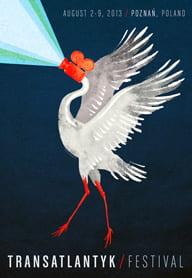 The 2013 Transatlantyk International Film and Music Festival was held in Poznań from August 2-9, and included two intensive competitions for young composers of film music. Participants in this year’s Young Composer Film Competition were tasked with composing music for two short films: The Third Miracle (4 min.), directed by Agnieszka Holland, and Pigeon Impossible (6 min., animation), directed by Lucas Martell. Announced on July 19, the 12 finalists in this Competition were:
The 2013 Transatlantyk International Film and Music Festival was held in Poznań from August 2-9, and included two intensive competitions for young composers of film music. Participants in this year’s Young Composer Film Competition were tasked with composing music for two short films: The Third Miracle (4 min.), directed by Agnieszka Holland, and Pigeon Impossible (6 min., animation), directed by Lucas Martell. Announced on July 19, the 12 finalists in this Competition were:
Włodzimierz Antoniv (Poland), Ophir Baron (Israel), Lennert Busch (Holland, Great Britain), Paweł Górniak (Poland), Cristian Mihail Lepadatu (Romania), Tomasz Opałka (Poland), Łukasz Pieprzyk (Poland), Jeffrey van Rossum (Holland), Moritz Schmittat (Germany), Xiaotian Shi (China, Great Britain), Mikołaj Stroiński (Poland /USA), and Vig Zartman (Armenia/Austria).
From among these 12 final competitors, the jury—comprised of composer Marco Beltrami, writer/director Petr Zelenka, composer/Festival founder Jan A.P. Kaczmarek, publisher Anna Laskowska of Sony/ATV, and soundtrack producer Robert Townson of Varèse Sarabande—announced the final winners on August 8:
- Transatlantyk Young Composer 2013 (60 000 PLN): Xiaotian Shi (pictured above)
- 2nd Prize (30 000 PLN): Lennert Busch
- 3rd Prize (15 000 PLN): Łukasz Pieprzyk
- Honorable Mentions: Cristian Mihail Lepadatu, Jeffrey van Rossum and Mikołaj Stroiński
The other composition competition that takes place during Transatlantyk is the Instant Composition Contest, during which participants must compose a live solo piano piece to pair with a short film immediately after having watched it. The jury—including Leszek Możdżer, chairman and internationally renowned pianist and arranger; Peter Golub, composer and Director of the Sundance Film Music Program; and Dave Porter, composer of the music for the television series Breaking Bad—determined the following winners in the Instant Composition Contest:
- Transatlantyk Instant Composer 2013 (30 000 PLN): Aleksander Dębicz (Poland)
- 2nd Prize (15 000 PLN): Jan Miserre (Germany)
- 3rd Prize (7 500 PLN): Radosław Mateja (Poland)
- Honorable Mentions: Michał Wróblewski (Poland) and Paweł Tomaszewski (Poland).
[Sources: polmic.pl, transatlantyk.org, transatlantyk.org]
Festivals
Wratislavia Cantans
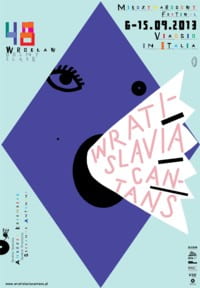 One of the most important European events in the field of classical music, this year’s 48th Wratislavia Cantans International Festival of Oratorio and Cantata will be held from September 6-15 in the beautiful historical interiors of Wrocław and Lower Silesia. This year’s theme of “Viaggio in Italia” [Journey to Italy] reflects Italy’s historical importance as the cradle of music and art when, centuries ago, visiting it was considered to be a duty of all artists and intellectuals. Italy is also as the birthplace of the Festival’s new Artistic Director, Giovanni Antonini—flutist and conductor, founder and artistic director of Il Giardino Armonico, one of the most famous baroque ensembles in the world.
One of the most important European events in the field of classical music, this year’s 48th Wratislavia Cantans International Festival of Oratorio and Cantata will be held from September 6-15 in the beautiful historical interiors of Wrocław and Lower Silesia. This year’s theme of “Viaggio in Italia” [Journey to Italy] reflects Italy’s historical importance as the cradle of music and art when, centuries ago, visiting it was considered to be a duty of all artists and intellectuals. Italy is also as the birthplace of the Festival’s new Artistic Director, Giovanni Antonini—flutist and conductor, founder and artistic director of Il Giardino Armonico, one of the most famous baroque ensembles in the world.
The Wratislavia Cantans Festival focues on the human voice in different forms and genres, and in various performance makeups—including vocal recitals, consort performances, presentations of choral and oratorio music involving dozens of singers, workshops and masterclasses. The festival is intended to present works in all musical styles, created in various music centers in all epochs of history.
A highlight of the 2013 Festival will be the World Premiere of a work comissioned by the Festival by a young Polish composer, Wojciech Ziemowit Zych. To be premiered on September 8 in the Wrocław Philharmonic Concert Hall, Zych’s Symphony No. 3 features a spatial factor reminiscent of the a cori spezzati music composed by Gabrieli and others for St Mark’s Basilica in Venice. Also on the concert will be Witold Lutosławski’s Jeux vénitiens for chamber orchestra. The program will be performed by Anna Ciuła-Pehlken – soprano, Maciej Straburzyński– bass-baritone, the Lutosławski Piano Duo and the Wrocław Philharmonic Orchestra with Szymon Bywalec– conductor.
Other internationally renowned musicians who will perform at the Festival include Roberta Invernizzi– soprano, Sonia Prina– contralto, Krystian Adam– tenor, Christopher Purves– bass, Wrocław Philharmonic Choir, Il Giardino Armonico with Giovanni Antonini– conductor, Le Mystère des Voix Bulgares with Dora Hristova– conductor, Margret Köll– arpa doppia, Kölner Kammerchor and Collegium Cartusianum with Peter Neumann– conductor, Giovanni Sollima– cello, the Festival Cello Ensemble, Corrado Rovaris – conductor, Silvia Frigato– soprano, Loriana Castellano– mezzo-soprano, Anicio Zorzi Giustiniani– tenor, Gianluca Buratto– bass, Wrocław Philharmonic Choir, Julia Lezhneva– soprano, Wrocław Baroque Orchestra, B’Rock (Belgian Baroque Orchestra Ghent), Quartetto di Cremona, Spira Mirabilis, Vox Luminis with Lionel Meunier– artistic director, Gemma Bertagnolli– soprano, Furio Zanasi– baritone, Giovanni Bietti– piano & narrator, The Swingle Singers and the Wrocław Philharmonic Orchestra with Ed Spanjaard– conductor, and Andrzej Kosendiak – conductor (and Festival General Director).
Wratislavia Cantans is a member of the prestigious European Festivals Association (EFA). For a full schedule of events, visit 2013.wratislaviacantans.pl.
[Sources: wratislaviacantans.pl, polmic.pl]
Muzyka Na Szczytach 2013
Held annually since 2009, the 2013 “Muzyka na Szczytach” [Music on the Heights] International Chamber Music Festival will take place in Zakopane from September 14-21. The “heights” included in the event’s name symbolize both the location of the Festival, as well as its superb artistic level. The organizers’ greatest concern is to popularize Polish music throughout the world, by including it in the repertoires of world-famous performers and thus influencing the European integration in culture, music and art.
The founders of the Festival’s organizers, the Mieczysław Karłowicz Association in Zakopane, strive to restore Zakopane to its former glory by inviting eminent musicians and artists to perform there, amongst the Tatran scenery. The choice of event locations and surroundings this beautiful region additionally boosts the Festival’s appeal to a wide circle of audiences.
The festival formula is based on holding a range of concerts, recitals, exhibitions and film screenings with live music. Highlights of this year’s Festival:
- Sept. 14: Inaugural Concert, featuring works by Lutosławski, Szymanowski, Ravel, and Stravinsky performed by Kwadrofonik, the Lutosławski Piano Duo and Hob-Beats Duo
- Sept. 18: an excellent ensemble of Janusz Wawrowski – violin, Jose Gallardo – piano, Michał Bryła – viola, Marcin Zdunik – cello, Arkadiusz Adamski – clarinet and Grzegorz Mondry – horn will perform works by Lutosławski, Penderecki and Brahms
- Sept. 20: soprano Agata Zubel and pianist Maciej Grzybowski will join with Gruppo di tempera and clarinetist Jakub Sztencel for a program of works by P. Mykietyn, J. Ibert, J. Francaix and F. Poulenc
- Sept. 21: Closing concert featuring the Szymanowski Quartet and pianist Jonathan Plowright performing works by Dvořák, J. Suk and W. Żeleński.
For a full program and more information, please visit muzykanaszczytach.com.
[Sources: muzykanaszczytach.com, prostoomuzyce.pl]
‘Spaces Of Music’ Chamber Festival
 Held every September for the last the years, the Spaces of Music [Muzyczne przestrzenie] Chamber Music Festival is a novelty on the musical map of Poland. Organized by the newly formed Zygmunt Noskowski Foundation and led by the Festival’s originator and artistic director, Janusz Wawrowski, ‘Spaces of Music’ offers enthusiasts of chamber music a unique opportunity to enjoy exquisite artistic performances organized in the churches, palaces and castles of the Wielkopolska region.
Held every September for the last the years, the Spaces of Music [Muzyczne przestrzenie] Chamber Music Festival is a novelty on the musical map of Poland. Organized by the newly formed Zygmunt Noskowski Foundation and led by the Festival’s originator and artistic director, Janusz Wawrowski, ‘Spaces of Music’ offers enthusiasts of chamber music a unique opportunity to enjoy exquisite artistic performances organized in the churches, palaces and castles of the Wielkopolska region.
This year’s festival will be attended by more than 30-artists from five countries, including Argentinian pianist José Gallardo, Israeli violin virtuoso Yair Kless and prominent Polish singer Joanna Kozłowska. Thanks to this year’s motto, “From Mozart to Lutoslawski,” artists will have the opportunity to perform works from several different periods of music, from classical to contemporary.
In addition to concerts for all ages as well as those specifically for children, this year’s Festival will host international master classes, held in Gniezno from September 8-14. These master classes will feature vocalists Joanna Kozłowska and Jagna Sokorska-Kwika, and violinist Yair Kless.
For a full listing of concerts, visit muzyczneprzestrzenie.pl. Admission to all Festival events is free.
[Sources: noskowski.org]
Sacrum Profanum Festival
 The Sacrum Profanum Festival is an international project that has earned the status of one of the most interesting European music events. The festival presents the newest music and is aimed at blurring the line between contemporary music, often treated as difficult and incomprehensible, and the developments of ambitious entertainment and the experimental scene. Its importance is created, on one hand, by the participation of the best ensembles playing contemporary music, e.g. Ensemble Modern, Alarm Will Sound, Bang on a Can All-Stars, Kronos Quartet, and, on the other hand, by the presence of stars of the world alternative scene, including Aphex Twin, Jónsi, Jonny Greenwood (Radiohead), Adrian Utley (Portishead), Kraftwerk and Sigur Rós.
The Sacrum Profanum Festival is an international project that has earned the status of one of the most interesting European music events. The festival presents the newest music and is aimed at blurring the line between contemporary music, often treated as difficult and incomprehensible, and the developments of ambitious entertainment and the experimental scene. Its importance is created, on one hand, by the participation of the best ensembles playing contemporary music, e.g. Ensemble Modern, Alarm Will Sound, Bang on a Can All-Stars, Kronos Quartet, and, on the other hand, by the presence of stars of the world alternative scene, including Aphex Twin, Jónsi, Jonny Greenwood (Radiohead), Adrian Utley (Portishead), Kraftwerk and Sigur Rós.
This year’s Festival, to be held from September 15-22 in Kraków, will feature works by Witold Lutosławski, Steven Reich and Marcin Stańczyk juxtaposed with performances by Frank Zappa, Portishead and Aphex Twin.
Sacrum Profanum 2013 consists of two parts: Modern! Now – exploring the experimental concert scene, and Classic! Now – 6 projects in which it comes to meeting ensembles specializing in contemporary music performance from the worlds of entertainment ambitious. Its formula is based on mutual penetration and inspiring music of different musical worlds.
For a full schedule of concerts and events, visit www.sacrumprofanum.com
[Source: sacrumprofanum.com]
Per Musicam Ad Astra – Festival & Competition
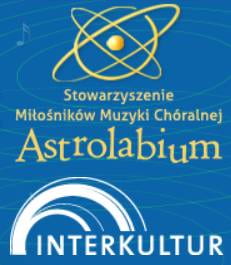 The ancient city of Toruń will host several hundred singers from all over the world during the first ‘Per Musicam ad Astra’ International Choir Competition and Festival, held on September 11-15, 2013. A collaboration between the local Astrolabium Choral Music Society and the Interkultur Foundation in Germany, participants in the Competition and Festival include choirs from Mexico, South Korea, Denmark, Russia, Latvia, Czech Republic, Germany, and Poland. The international jury, including Jan Łukaszewski (Poland), Kim Mann (USA), Battista Pradal (Italy), Robert Sund (Sweden) and Krzysztof Szydzisz (Poland), will judge the choral Competition. During the Festival, all ensembles will perform in Toruń and the surrounding area, including the towns of Lubicz, Chełmża, and Chełmno. Vocal music will resonate in a variety of venues, including concert halls, churches and open air settings.
The ancient city of Toruń will host several hundred singers from all over the world during the first ‘Per Musicam ad Astra’ International Choir Competition and Festival, held on September 11-15, 2013. A collaboration between the local Astrolabium Choral Music Society and the Interkultur Foundation in Germany, participants in the Competition and Festival include choirs from Mexico, South Korea, Denmark, Russia, Latvia, Czech Republic, Germany, and Poland. The international jury, including Jan Łukaszewski (Poland), Kim Mann (USA), Battista Pradal (Italy), Robert Sund (Sweden) and Krzysztof Szydzisz (Poland), will judge the choral Competition. During the Festival, all ensembles will perform in Toruń and the surrounding area, including the towns of Lubicz, Chełmża, and Chełmno. Vocal music will resonate in a variety of venues, including concert halls, churches and open air settings.
Special concerts featuring music by Polish composers will add to the Festival. The concert version of Szymanowski’s ballet Harnasie will be heard at the Holy Ghost Church in Toruń on September 11 and the Scola Cantorum Gedaniensis ensemble will perform a day later at the University Chapel. The Festival will also include master classes in vocal technique and vocal ensemble workshops. Admission to all events is free and more information can be found at: www.pmaa.pl
[Source: pwm.com.pl]
Solidarity of Arts
 The fifth annual Solidarity of Arts festival opened August 17, 2013 in Gdańsk, and looks no less packed with extraordinary art events than in previous years. The cultural institutions of the Pomorskie province, together with the City of Gdańsk, the Polish Film Institute, the European Solidarity Centre, the Polish Baltic Philharmonic and the Ministry of Culture and National Heritage are making sure that Gdańsk continues to be an exciting place to visit for arts enthusiasts from all over the world. For a quick look at highlights of the last 5 years of the Festival, view the 30 Photo Moments gallery.
The fifth annual Solidarity of Arts festival opened August 17, 2013 in Gdańsk, and looks no less packed with extraordinary art events than in previous years. The cultural institutions of the Pomorskie province, together with the City of Gdańsk, the Polish Film Institute, the European Solidarity Centre, the Polish Baltic Philharmonic and the Ministry of Culture and National Heritage are making sure that Gdańsk continues to be an exciting place to visit for arts enthusiasts from all over the world. For a quick look at highlights of the last 5 years of the Festival, view the 30 Photo Moments gallery.
Highlights of this year’s Festival are: a noteworthy concert at the Polish Baltic Philharmonic by conductor Maxim Vengerov and the excitingly young yet already brilliant Menuhin Orchestra (September 8); a remarkable premiere of Maria, an 1903 opera by Roman Statkowski, led by conductor Łukasz Borowicz (August 27-29) at the Baltic Opera; and Poland’s biggest open-air jazz show of the season—the “+” series—this year featuring the amazing Bobby McFerrin in “McFerrin+” (August 17).
[Source: solidarityofarts.pl]
Performances
Warsaw Nat’l Phil Impresses At BBC Proms
On August 23, Maestro Antoni Wit and the Warsaw National Philharmonic Orchestra made their debut at the BBC Proms Festival, during a Festival edition that was focused on Polish music during Lutosławski’s centenary year. The program included Lutosławski’s virtuosic folk-inflected Concerto for Orchestra, which was written for the Warsaw Philharmonic in 1954. Also on the program were Shostakovich’s buoyant Piano Concerto No. 2, as well as Andrzej Panufnik’s Tragic Overture and Lullaby and Shostakovich’s Sixth Symphony, painting a vivid picture of two nations in parallel periods of anxiety. Pianist Alexander Melnikov shared the stage with the Warsaw Phil as soloist.
This debut showing of the Phil was met with enthusiastic praise from all corners of the London press. Below is an excerpt from Hilary Finch of The Times of London (reprinted on the Philharmonic’s website):
“This was, incredibly, the orchestra’s Proms debut, and also the occasion of the final appearance of Antoni Wit as its chief conductor. So, there was a real sense of moment. The sinewy melancholy that can characterise the strings of this orchestra was focused intensely on inflecting the single striding opening line. And the raw alacrity of response to Wit’s baton created exciting tension in the subsequent movements.”
From John Allison of The Telegraph:
“As Lutoslawski’s most famous work, the Concerto for Orchestra has achieved the status of a modern classic, yet it doesn’t always sound as deeply cultivated as here. These interpreters instinctively recognise its folk-melodic roots while also grasping its innovative structure, and the darkly-focused winds lent special pungency to the performance.
…
The quiet heart – and highlight – of the programme was Panufnik’s Lullaby, a remarkable landmark in Polish music for its division of the string orchestra into 29 parts and use of clusters and quarter-tones. Wit shaped a beautiful performance that emerged softly from the dreamy, disembodied textures, and the orchestra’s leader, Ewa Marczyk, spun wonderfully delicate lines.”
From Tim Ashley of The Guardian:
“Wit and his players have Lutosławski in their blood: the Concerto for Orchestra was by turns dazzling and emotive, the Scherzo flickering with unease, the Passacaglia shuddering animalistically into life, the Toccata at once thrilling and exact. Andrzej Panufnik was represented by two works. The Tragic Overture, written in 1942, and performed with noble fury, is a fierce indictment of the Nazi occupation of Poland. Lullaby, meanwhile, a product of Panufnik’s long British exile, was inspired by the sight of a full moon during a walk across Waterloo Bridge on a misty night. A folk melody wafts in and out of focus amid an eerie miasma of strings. It was exquisitely done.
…
Unlike some conductors who strive for a sense of stasis at the start [of Shostakovich’s Sixth Symphony], Wit pushed the Largo onwards with urgency. The finale was edge-of-your seat stuff. Very fine.”
[Sources: thetimes.co.uk, filharmonia.pl, telegraph.co.uk]
Discography
Muzyka21 Record Of The Month
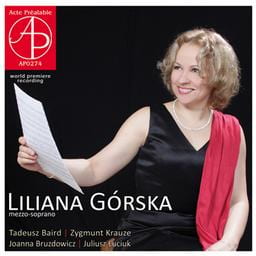 Liliana Górska: Baird – Krauze – Bruzdowicz – Łuciuk
Liliana Górska: Baird – Krauze – Bruzdowicz – Łuciuk
Tadeusz Bird: Pieśni truwerów, Zygmunt Krauze: Pantumy malajskie, Joanna Bruzdowicz: Rysunki z przystani, Juliusz Łuciuk: Potrerty liryczne
Liliana Górska, mezzo-soprano; Katarzyna Bojaruniec, conductor; Dorota Dąbrowska, flute; Anna Gadzińska, flute; Krzysztof Koziatek, cello; Marcin Kucharzewski, piano; Anna Mikolon, piano; Artur Milian, violin; Szymon Morus, conductor; Anna Mrachacz, violin; Mariusz Mruczek, cello; Aleksandra Pyrcz, flute; Piotr Sutt, percussion
Acte Prealable AP0274
 Mezzo-soprano Liliana Górska received high praise for her CD of song cycles by four contemporary Polish composers: Tadeusz Baird, Zygmunt Krauze, Joanna Bruzdowicz and Juliusz Łuciuk. Described as “a superb interpreter of this repertoire” and an artist with a “noteworthy, creamy-soft mezzo” by reviewer Damian Sowa of Muzyka 21 magazine (September 2013), Górska’s recording was given Muzyka 21’s “Record of the Month” distinction.
Mezzo-soprano Liliana Górska received high praise for her CD of song cycles by four contemporary Polish composers: Tadeusz Baird, Zygmunt Krauze, Joanna Bruzdowicz and Juliusz Łuciuk. Described as “a superb interpreter of this repertoire” and an artist with a “noteworthy, creamy-soft mezzo” by reviewer Damian Sowa of Muzyka 21 magazine (September 2013), Górska’s recording was given Muzyka 21’s “Record of the Month” distinction.
[Source: Muzyka 21 pre-release]
Panufnik Series Continued
 Andrzej Panufnik – Symphonic Works Vol.6
Andrzej Panufnik – Symphonic Works Vol.6
Andrzej Panufnik: Concertino for Timpani, Percussion & Strings; Sinfonia della Speranza (Symphony No. 9)
Konzerthausorchester Berlin, Lukasz Borowicz – cond.
CPO 777 685-2
The composition of a ninth symphony has represented a symbolic challenge within the tradition for almost every composer after Beethoven. Andrzej Panufnik met this challenge with his most ambitious and large-scale work. It was supposed to be a choral symphony, but Panufnik decided against this: “The Sinfonia della Speranza reflects my musical interpretation of the ideal of hope: within its notes I have tried to incorporate a spiritual message, an expression of my faith in mankind as well as my longing for racial and religious tolerance among all people.” This CD also includes an exciting new recording of Panufnik’s percussive Concertino. Listen to a sample of the recording at www.boosey.com.
[Source: Boosey & Hawkes press release]
New on CD Accord
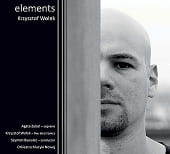 Krzysztof Wołek – Elements
Krzysztof Wołek – Elements
Krzysztof Wołek (b. 1976): Eppur si muove for soprano, chamber ensemble and live electronics; Bend for chamber ensemble; Elements for chamber ensemble and live electronics
Agata Zubel – soprano; Krzysztof Wołek – live electronics; Szymon Bywalec – conductor; Orkiestra Muzyki Nowej
Accord ACD 188 (March 2013)
Krzysztof Wołek (born in 1976 in Bytom, Poland) is a composer, electronic music performer, concert organizer and educator. He is a passionate advocate of contemporary acoustic and electronic music and multimedia compositions. His interdisciplinary interests resulted in annual concerts organized under his supervision and in collaborative works with dancers and visual artists. Even the short description above is informative as concerns the position of the artist in the environment of new music, where a composer not only writes his works on manuscript paper, but also takes on an active role during performances as an improviser or performer of the live electronics portion of the work. In recent decades contemporary music has embraced a variety of multimedia arts, requiring the mastery of new technology (not only using but also developing software that serves the score as well its amalgamated sound in real time) and remaining in symbiotic coexistence with other art forms, expanding a purely acoustic layer with visual layers, either with theatrical and paratheatrical or cinematic and paracinematic elements contained often within a video component. It is within these creative currents that Krzysztof Wołek finds a myriad of possibilities for his artistic expression.
Krzysztof Wołek’s body of work covers a wide spectrum, ranging from purely acoustic and electroacoustic music through improvisations to diverse forms of installations and works verging on multimedia art. In his compositions he creates, as he himself states, “idiosyncratic relationships between various elements.”
For his full bio, visit cdaccord.com.pl or www.krzysztofwolek.com.
[Source: cdaccord.com.pl]
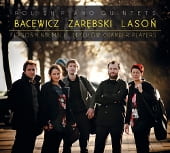 Bacewicz, Zarębski and Lasoń Quintets
Bacewicz, Zarębski and Lasoń Quintets
Grażyna Bacewicz: Piano Quintet No. 1; Juliusz Zarębski: Piano Quintet No. 1; Aleksander Lasoń: Muzyka kameralna nr. 1 “Starowolska”
Lasoń Ensemble—Kameraliści Mikołowa
Accord ACD 178-2
The piano quintets composed by Zarębski and Bacewicz are a milestone of Polish chamber music literature. Another recording of these two works, augmented by an interesting smaller work for the ensemble by Lasoń, is certainly warranted. The review by Piotr Wolanin for Muzyka 21 (September 2013) finds the performances rather bland however, stating that: “Zarębski’s Quintet especially shows the musicians’ lack of understanding the piece and that’s why the recording by the Lasoń Ensemble does not measure up to the very successful recordings of Zarębski made by the Royal String Quartet [BeArTon CDB036] or the Szymanowski Quartet [Hyperion CDA67905].” Concluding, Mr. Wolanin observes that only Lasoń’s composition can be seen as an item of interest on this CD and wonders “whether this is enough to listen to the recording again.”
 Lutosławski Quartet – Bridge
Lutosławski Quartet – Bridge
Shostakovich: String Quartet #3; Marcin Markowicz: String Quartet #3; Karol Szymanowski: String Quartet #2; Marcin Markowicz: Shostako-witz.
Lutosławski Quartet: Jakub Jakowicz – 1st violin; Marcin Markowicz – 2nd violin; Artur Rozmysłowicz – viola; Maciej Młodawski – cello
Accord ACD 172
The Lutosławski Quartet performs contemporary music as well as recently commissioned pieces, and focuses on popularizing Polish music, including works by Lutosławski, Bacewicz, Szymanowski, and also compositions by one of the group members – Marcin Markowicz. An ensemble made up of versatile and open-minded artists, they blend the contemporary repertoire with classical, Romantic and jazz music. Their future plans include further recording projects that promote Polish music. The quartet works as one of the resident ensembles at the National Forum of Music.
The ensemble was founded in 2007. It has appeared at many festivals, including: Wratislavia Cantans, Ensemble, Musica Polonica Nova, Jazztopad, Chain, the Lutosławski Forum at the Warsaw Philharmonic, the Klara Festival in Brussels, and the Ankara Music Festival in Turkey. The quartet has given concerts with Bruno Canino, Paul Gulda, the Silesian Quartet, the Royal String Quartet, Tomasz Strahl, Ryszard Groblewski, an English oboist Nicholas Daniel, the world-renowned pianist and Chopin Competition prize-winner – Eugen Indijc, an extraordinary clarinetist Michel Lethiec, as well as outstanding jazz players such as Kenny Wheeler, John Taylor and Uri Caine.
[Source: cdaccord.com.pl]
 Rafał Augustyn: Do ut des—Music for and with quartet
Rafał Augustyn: Do ut des—Music for and with quartet
Augustyn: String Quartet #1; String Quartet #2 with flute; Dedication for soprano and string quartet; Do ut des for string quartet; Grand jeté (Quartet #2 ½ with electronics).
Silesian String Quartet: Szymon Krzeszowiec – violin I, Arkadiusz Kubica – violin II, Łukasz Syrnicki – viola, Piotr Janosik – cello; Agata Zubel – soprano [5]; Jan Krzeszowiec – flute [4]; Rafał Augustyn – electronics [7]-[14]
Accord ACD 165-2
In their latest recording on the Accord label, the Silesian String Quartet presents a large portion of Rafał Augustyn’s chamber music. The CD contains Augustyn’s First and Second string quartets (the Second adds the flute to the group), as well Dedykacje for soprano and string quartet and Grand jeté for quartet and electronics. The reviewer, Piotr Wolanin (Muzyka 21, September 2013), notes the opening miniature, Do ut des, as “the most representative of works in terms of Augustyn’s musical language.” Contributions by flutist Jan Krzeszowiec were praised for their “ideal unification of the flute sound with the sound of the strings” but Agata Zubel’s soprano part in Dedykacje elicited some reservations about Ms. Zubel’s vocal range and diction.
[Sources: Muzyka 21 pre-release, cdaccord.com.pl]
New Beczała on DG
 Piotr Beczala – Heart’s Delight: The Songs of Richard Tauber
Piotr Beczala – Heart’s Delight: The Songs of Richard Tauber
Piotr Beczala – tenor, Royal Philharmonic Orchestra, Lukasz Borowicz – cond. with guest artists: Anna Netrebko, Daniela Fally, Avi Avital and the Berlin Comedian Harmonists
Deutsche Grammophon CD 479 0838
May 2013 marked the international release of Piotr Beczała’s latest recording with the prestigious Deutsche Grammophon record label. According to the label’s website:
The internationally acclaimed Polish tenor Piotr Beczala is fascinated by the fact that major operetta composers wrote for Tauber and has chosen works closely associated with his legendary predecessor for his Deutsche Grammophon album debut: «When a composer writes a song or an oratorio today, he generally doesn’t think of the person who will sing it. In those days, however, composers wrote for particular singers – Lehár and Stolz, for example, wrote specifically for Tauber and his vocal register. In Lehár’s compositions, in particular, Tauber’s personal style can be clearly identified.» Written with Tauber’s voice in mind, these songs were all hit numbers at the time: audiences needed only to hear the first bar or so to know it was a Tauber song. Tauber was idolized and a part of popular culture, his songs were sung and whistled everywhere, and his effect on women was the subject of hit tunes such as Willy Rosen’s «If I were Richard Tauber».
…
Born in the Austrian city of Linz in 1891, Tauber was a gifted bel canto tenor who consciously broke down the barriers between light music and its more serious classical counterpart, captivating audiences all over the world in a way practically unique among 20th-century tenors. Even today, 65 years after his death, he continues to enjoy an enthusiastic following, thanks to his historic recordings and films, as well as his own compositions.
…
Piotr Beczala is in constant demand today at the world’s most prestigious opera companies, appearing everywhere from the Metropolitan Opera and the Royal Opera House, Covent Garden to the Vienna Staatsoper and the Teatro alla Scala in Milan, and as soloist with the finest international orchestras and festivals. His eloquent interpretations of roles such as the Duke of Mantua in Rigoletto, Rodolfo in Puccini’s La bohème, Lensky in Eugene Onegin, Des Grieux in Manon, Edgardo in Lucia di Lammermoor and Romeo in Gounod’s Roméo et Juliette have been widely praised by the most knowledgeable critics and lauded for their depth of musical and dramatic perception. John Allison, Editor of Opera, recently described the tenor as «one of the most truly exciting male voices of the present day».
[Sources: prostoomuzyce.pl, deutschegrammophon.com]
‘Real Chopin’ Continues on NIFC’S Label
 Chopin. Etiudy op. 10, 2 Polonezy
Chopin. Etiudy op. 10, 2 Polonezy
Frederic Chopin: Etudes, Op. 10; Mazurkas, Op. 56; Polonaises Op. 40 no. 2 and Op. 71 no. 3; and other works
Magdalena Lisak, piano
NIFC CD 025
Magdalena Lisak, a young pianist and student of Andrzej Jasiński, Homero Francesch and Krystian Zimerman, is described as “a mature artist [who] seeks to uncover the most appropriate form in every composition.” Part of the ‘Real Chopin’ series—the world’s first phonographic collection of the complete works of Fryderyk Chopin on period instruments—this recording was made on a historical 1849 Erard piano, clearly bringing the listener closer to the piano sound with which Chopin was familiar during his lifetime. The series is published by the National Fryderyk Chopin Institute (NIFC) in Warsaw.
Selected interpretations of the Op. 10 Etudes and Mazurkas, Op. 56 on this recording were praised by Łukasz Kaczmarek (Muzyka 21, September 2013) for the pianist’s “beautiful and also varied articulation and dynamics [that] successfully draw in the listener’s attention and awaken his fascination with the music.” Lisak’s ability to elicit beautiful sounds from the Erard piano charmed the reviewer, who highly recommends this recording to the public.
Other recent additions to the ‘Real Chopin’ series:
- NIFCCD 026 Chopin. Ballades, Nocturnes, Scherzo – Wojciech Świtała
- NIFCCD 028 Chopin. Preludes, Impromptus – Akiko Ebi
- NIFCCD 029 Chopin. Piano concertos – Yulianna Avdeeva
- NIFCCD 032 Alex Szilasi. Nocturnes
- The Real Chopin – Complete Works (21 CDs)
[Sources: Muzyka 21 pre-release, chopin.nifc.pl]
CDs & Performer Profiles
By Gary Fitelberg
What do Emily White and Carol Rosenberger share besides their deep love and respect for the piano works of Karol Szymanowski (1882-1937)? They both have Polish grandparents, joining the over nine million Americans who can prove Polish origins.
 Szymanowski Piano Works
Szymanowski Piano Works
Karol Szymanowski: Sonata No. 3, Op. 36; Four Etudes, Op. 4; Metopes, Op. 29 and Masques, Op. 34.
Emily White – Piano
Arabesque Recordings Z6807
Pianist Emily White is an excellent exponent and proponent of Polish composers Chopin and Szymanowski – playing each both masterfully and skillfully in concert performances internationally.
According to Arabesque Records:
Emily White approaches the solo piano works of renowned Polish composer Karol Szymanowski with great care and precision. She manages to coax vivid emotions from the depths of the piano and clearly grasps Szymanowski’s musical intent. With her fingers gliding over the piano keys, occasionally punctuating notes that highlight extravagant passages, Ms. White manages to draw the audience in and hold their attention. This album is deeply moving and an unrivaled performance of Szymanowski piano works.
White has received rave reviews in the media and press regarding her Syzmanowski concert performances especially for the composition Masques:
“Emily White delivered Szymanowski’s Masques with an incendiary intensity, distilling its iridescent, often voluptuous textures without ever cloying the ear. She realised the rhapsodic meditation that is Sheherazadewith dramatic flair, projected the Scarbo-like Tantris the Buffoonwith a witty and powerfully rhythmic elan.”
– Musical Opinion,Leeds, UK
With piety and at the same time subtlety she performed [Szymanowski’s]Masques, op. 34 and several Mazurkas, but the chief attraction of her performance were the Rags of William Bolcom, in which the spiritual essence was deftly linked with the jest under the signature of Milhaud.”
– Ruch muzyczny, Warsaw, Poland
A standing-room-only, all-Chopin début at Weill Recital Hall, Carnegie Hall moved The New York Times reviewer Allan Kozinn to comment that Emily White had “captured the almost improvisational quality that is the mark of great Chopin playing.” Ms. White’s international career has taken her to London’s Wigmore Hall and South Bank Centre, the Queen’s Hall in Edinburgh, Saint David’s Hall in Cardiff, the Palais de l’Athénée in Geneva, and to Belgium, Italy, and Eastern Europe, as well as throughout the United States and Canada. This past October, she performed Szymanowski’s Don Juan’s Serenade in a Polish music gala honoring presenter Jan Sporek at Isaac Stern Auditorium, Carnegie Hall. Ms. White’s new CD release of Piano Works by Szymanowski on Arabesque Recordings has been aired on Strasbourg radio’s ACCENT 4 to a listening audience of nearly 100,000. Ms. White’s recent lecture recitals on Szymanowski have been well received at several universities including the University of Washington and University of Oregon.
Born in Rye, New York, Emily White spent her student years in Miami, Florida. As a youngster, she performed three times as concerto soloist at Interlochen and was honored with the Miami Herald’s Silver Knight Award for Music. Ms. White has won top prizes at the International Young Concert Artists Competition of Royal Tunbridge Wells, England, the International Mozart Competition in Austria, the Chopin Competition hosted by the New York chapter of the Chopin Foundation of the United States, and the National Federation of Music Clubs Young Artist Auditions. She has taken part in the International Tchaikovsky Competition in Moscow and in the Paloma O’Shea International Piano Competition in Santander, Spain, where she was selected as the only American among twelve semifinalists. As collaborative artist, Ms. White has performed with the Emperor String Quartet in London and the Klangfarben Ensemble in New York, as official pianist for strings at the Gubbio Festival in Italy and for oboists at the Music Mountain Festival in Connecticut, and with singers at the Juilliard Opera Center and Tanglewood’s Berkshire Music Festival. Emily White is a Steinway Artist.
When asked how she became interested in Polish music, particularly Szymanowski, White responded:
My first acquaintance with Szymanowski’s name, while I was reading Arthur Rubinstein’s memoirs as a teenager, filled me with curiosity about the sound of his music. Finally, in a master class at Tanglewood when I was eighteen, I heard a couple of his art songs, and I was overwhelmed. The only Szymanowski piano piece anyone ever played was the B-flat-minor Étude, like a cinematic love story; but this language was different. It had all the chromaticism and visceral pull of Wagner and late Scriabin, but with transparency, detail, and a sense of formal proportion like Brahms. I like thinking of “Sheherazade” as the Eleventh Sonata Scriabin never wrote. Szymanowski is to Scriabin what Messiaen is to Debussy, an extension of musical genes into a new psychological realm. Well, speaking of genes, around this time I discovered that my paternal grandparents had been born an hour’s bumpy bus ride from Szymanowski’s log cabin in the Tatra Mountains in southern Poland, and I became obsessed with the idea of going to the old country. My dream was realized after several years with the encouragement of Andrzej Dutkiewicz, a Professor at the Chopin Academy in Warsaw who had been a friend of my high school piano teacher and had known me since I was a little kid at the Interlochen Arts Camp. Professor Dutkiewicz introduced me to the Director of the International Szymanowski Festival, but he said that if I wanted to perform Szymanowski in Poland, I would have to learn a larger program. This I did with some additional help: by coincidence, one of my teachers in New York, Donn-Alexandre Feder, had written about and recorded Szymanowski and had studied in Poland with Zbigniew Drzewiecki, who had given the first performance of many of Szymanowski’s works–and he had scores with invaluable annotations and fingerings that I was able to borrow. My first trip to Poland inspired me to keep learning more. Szymanowski’s sound is such an acquired taste that it is almost necessary to set his works in recital programs with other composers. The pieces go with anything, particularly Polish music: Chopin, Moszkowski, or Paderewski. I am still working on convincing presenters to let me try an all-Szymanowski concert!
Emily White’s sensitive portrayal of Szymanowski piano works stimulates the soul.
[Sources: ewhitepianist.com, arabesquerecords.com]
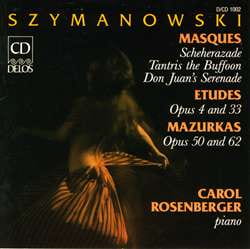 SZYMANOWSKI: Masques – Etudes – Mazurkas
SZYMANOWSKI: Masques – Etudes – Mazurkas
Karol Szymanowski: Masques Op. 34; Etudes Op. 4; Etudes Op. 33; Mazurkas Op. 62; Mazurkas Op. 50 Nos. 1, 2, 3, 7, 11, 15, 18
Carol Rosenberger – Piano
DELOS DE 1002
“Ravishing, elegant pianism” wrote The New York Times of American pianist Carol Rosenberger, who continues to attract an international audience as she brings her special blend of refined virtuosity and poetically compelling interpretations to both traditional and contemporary repertoire. “Eloquent and sensitive playing” wrote The Times of London, while that city’s Daily Telegraph commented: “Her playing was alive to every fleeting sense impression, yet intellectually commanding. These were ideal performances.”
When asked how she became interested in Polish music, especially Szymanowski, Rosenberger responded kindly and positively:
“Goes way back to my maternal grandmother, whose maiden name was Ann Wasielewski, and who lived with our family as I was growing up. I felt a kinship with things Polish for reasons I couldn’t identify until I started playing Chopin at about age 6, and a few years later read a fascinating book about the subtlety of the Polish language (of which my grandmother had taught me only a few words).
OK, fast forward now to my touring days as a pianist, when I found, in a local sheet music store (yes, one really could browse in those days), a copy of Szymanowski’s Etudes, Op. 33, with pages still uncut. Obviously, not in great demand… Took it home, carefully cut the pages, and fell in love! Wrote to publisher, who sent me photocopies of more of his music from that same period (out of print), and I fell in love with the Masques, Op. 34.
Fast forward again to a concert in NYC when I was performing some of the above, and Allan Barrody-Szymanowski, the composer’s nephew, came backstage to meet me. Allan and I became friends, and he gave me otherwise-unobtainable copies of the Mazurkas, Op. 62. BTW, I touch on the Etudes/Masques discovery and Allan and Mazurkas in my booklet notes, also.
One memory that stands out for me as I toured with Szymanowski’s music is a pair of recital programs I did at UCLA: one late Beethoven and the other Szymanowski/Chopin. At the latter program, the whole Polish community had evidently been alerted, and appeared in substantial numbers, complete with little kids in appropriate garb bringing flowers to the stage. Very touching, and unforgettable… I wished my grandmother could have known of it…”
From Carol Rosenberger’s biography at delosmusic.com
Since the 1970 debut tour that elicited such comment in New York, Boston, London, Paris, Vienna, Berlin and other capitals, Carol’s distinguished recital programs and guest appearances with orchestras have carried her to most major European and American cities. Concert appearances over the past few years include New York’s Town Hall, Philharmonic Hall and the Great Hall of the Tchaikovsky Conservatory in Moscow, Peter the Great’s Palace in St. Petersburg, Italy’s Rossini Opera House, and tours of Scandinavia and the U.S., with the Moscow Chamber Orchestra under Constantine Orbelian.
Carol’s celebrated series of concept-recordings began with Water Music of the Impressionists, which was selected by Stereo Review as one of the 25 Best Classical Compact Discs of all time, by Gramophone as a Recording of the Year, and by Billboard as an All-time Great Recording. The Impressionistic Night Moods was the successful sequel, and a second water-music disc, Singing on the Water, included Barcarolles written especially for the album by Sir Richard Rodney Bennett and American composer David Diamond.
…
Born in Detroit, Michigan, Carol studied in the U.S. with Webster Aitken and Katja Andy; in Paris with the legendary Nadia Boulanger; and in Vienna with harpsichordist/ Baroque scholar Eta Harich-Schneider and Schenker theorist Franz Eibner. She has been the subject of articles in many of the nation’s leading newspapers and magazines, and in 1976 was chosen to represent America’s women concert artists by the President’s National Commission on the Observance of International Women’s Year. She has been on the faculties of the University of Southern California, California State University Northridge and Immaculate Heart College. She has given performance workshops for young musicians on campuses nationwide.
Carol has given numerous benefit performances for physical rehabilitation programs, an effort motivated by her own experience. Her official debut was delayed ten years by an attack of paralytic polio at the outset of her career. The disease damaged most severely the very muscles needed for piano playing. Carol spent those ten years of seclusion and rehabilitation partly in Vienna, studying Baroque style and theory at the Academy, and absorbing German lieder, opera, instrumental music and literature.
Upon Carol’s return to the concert stage, not even her management knew, at the beginning, about her long ordeal. As her story became known, she proved to be an inspiration to many. She feels that her successful struggle to overcome all traces of polio taught her a great deal that she has been able to pass on to others. She has taught workshops at USC and other universities, in the wide-ranging area of physical and psychological preparation for performance. Carol is currently working on a book about her experiences.
In an enthusiastic review of a Rosenberger recital at Carnegie Hall, Mark Kanny, then Music Editor of FM Guide, had his own response to the artist/person he heard that night: “Her performances have an unforced quality that has nothing to do with lack of energy. Rather her playing draws on an inner calm. One hears this too when she talks about the problems of a woman pianist, or about the need for a more engaging concert format…she has retained her humanity; her name is worth remembering.”
Since the death of Delos founder Amelia Haygood in 2007, Carol has taken on a larger responsibility for the label, and is now its Director. She and Constantine Orbelian have extended their musical collaborations to label activity, since Constantine is now the international A&R Director for Delos.
[Source: delosmusic.com]
Gary Fitelberg is a musicologist, music critic and music historian specializing in Polish music and musicians.
Anniversaries
Born This Month
-
1 September 1900 – Kazimierz WIŁKOMIRSKI, cellist, conductor, teacher (died in 1990)
-
5 September 1924 – Krystyna MOSZUMAŃSKA-NAZAR, composer
-
5 September 1938 – Piotr LACHERT, pianist, composer, pedagogue
-
6 September 1916 – Tadeusz DOBRZAŃSKI, composer and conductor
-
7 September 1943 – Elzbieta STEFAŃSKA, harpsichordist
-
9 September 1921 – Andrzej DOBROWOLSKI, composer (died in 1989)
-
9 September 1923 – Andrzej BACHLEDA, tenor
-
13 September 1896 – Tadeusz SZELIGOWSKI (died 10 January 1963), composer
-
14 September 1937 – Jan ASTRIAB, composer
-
14 September 1914 – Michał SPISAK, composer (died 29 January 1965, Paris)
-
16 September 1895 – Karol RATHAUS, composer, pianist (died 21 November 1954, New York)
-
16 September 1891 – Czesław MAREK, composer, pianist
-
18 September 1919 – Edward BURY, composer and theory teacher
-
18 September 1928 – Adam WALACIŃSKI, composer and music critic
-
18 September 1883 – Ludomir RÓŻYCKI (died 1 January 1953), composer
-
19 September 1938 – Zygmunt KRAUZE, composer and pianist
-
22 September 1940 – Edward BOGUSŁAWSKI, composer
-
23 September 1912 – Irena PFEIFFER, composer, conductor.
-
24 September 1914 – Andrzej PANUFNIK (died 27 October 1991)
-
30 September 1942 – Andrzej DUTKIEWICZ, pianist and composer
-
30 September 1947 – Jan OLESZKOWICZ, composer
Died This Month
-
13 September 1977 – Leopold STOKOWSKI (born 18 April 1882), conductor and composer
-
15 September 1895 – Jan KLECZYŃSKI (b. 8 June 1857), pianist and music critic
-
15 September 1944 – Bronislaw WOLFSTAHL, composer, pianist, conductor (b. 22 July 1883)
-
18 September 1857 – Karol KURPIŃSKI (b. 6 March 1785), composer and conductor
-
26 September 1944 – Seweryn BARBAG (b. 4 September 1891), musicologist.
-
29 September 1954 – Alfred GRADSTEIN (born 30 October 1904), composer, and social activist
-
27 September 1943 – Waclaw GIEBUROWSKI (born 6 February 1878), priest, choral conductor and musicologist
-
28 September 1939 – Halina SZMOLC-FITELBERG (born 25 December 1892), dancer (Diaghilev ensemble, Grand Theatre)
-
28 September 1956 – Walerian BIERDAJEW, conductor and teacher (b. 7 March 1885)
-
29 September 1861 – Tekla BADARZEWSKA-BARANOWSKA (b. 1834), composer of “The Maiden’s Prayer”





